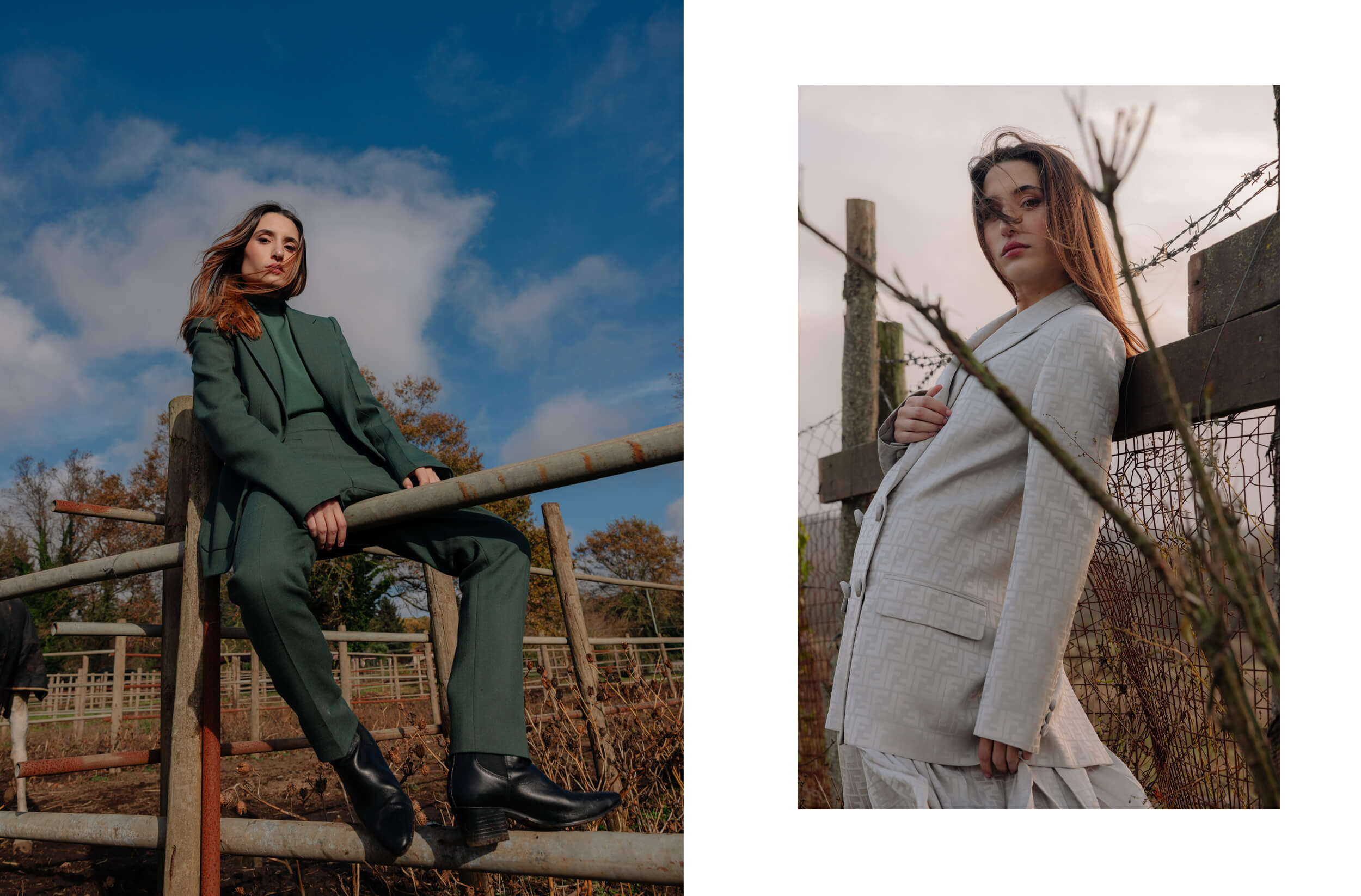A film made of sensations, silences, shouted words, and things left unsaid.
“La seconda vita” directed by Vito Palmieri, speaks of redemption, forgiveness, but above all, of impossible forgiveness.
The protagonist Anna, portrayed by Marianna Fontana, carefully and thoughtfully embodies a character as complex as it is fascinating. Marianna is a woman of great sensitivity, always shining on screen, and equally authentic in her life.
I met Marianna again after a few years, and it was wonderful to talk to her about life and the film: she shared her thoughts on Anna with us, a character who, despite her shadows, manages to shine with humanity.
We talked about cinema, humanity, personal growth, a new approach to life and work that leads her to give more space to herself and her needs.
With a consistently authentic gaze on the world, we discovered the power of small gestures, the importance of forgiveness, and the beauty of remaining true to oneself.
I really liked “La seconda vita”; I found it to be a sincere and very delicate film on a truly profound subject. It encompasses a bit of everything: forgiveness, kindness, cruelty, indecision, violence, and tenderness. What was it like reading the script for the first time?
I received the screenplay for that film last year, and it struck me deeply when I read it. My character is hardly ever seen in movies because she’s one of those figures that always remain in the shadows in real life. So, I immediately liked the idea of shedding light on this character, especially because she understands her mistakes.
By the way, a few days ago, we visited the Volterra prison, where I met the inmates—an indescribable emotion that still lingers with me. Anyway, I immediately wanted to work on this character. There was about a two-month preparation period with Vito Palmieri, the director, who also directed a documentary on this topic titled “Riparazioni”, and conducted film classes in the Bologna and Volterra prisons, so he was very familiar with the subject. Then, I met with a criminologist who explained the whole process these people go through during their journey. So, gradually, I connected with Anna. It was also a significant inner work, full of silence because this character carries a significant loneliness with her. These were the first aspects of the film that struck me.
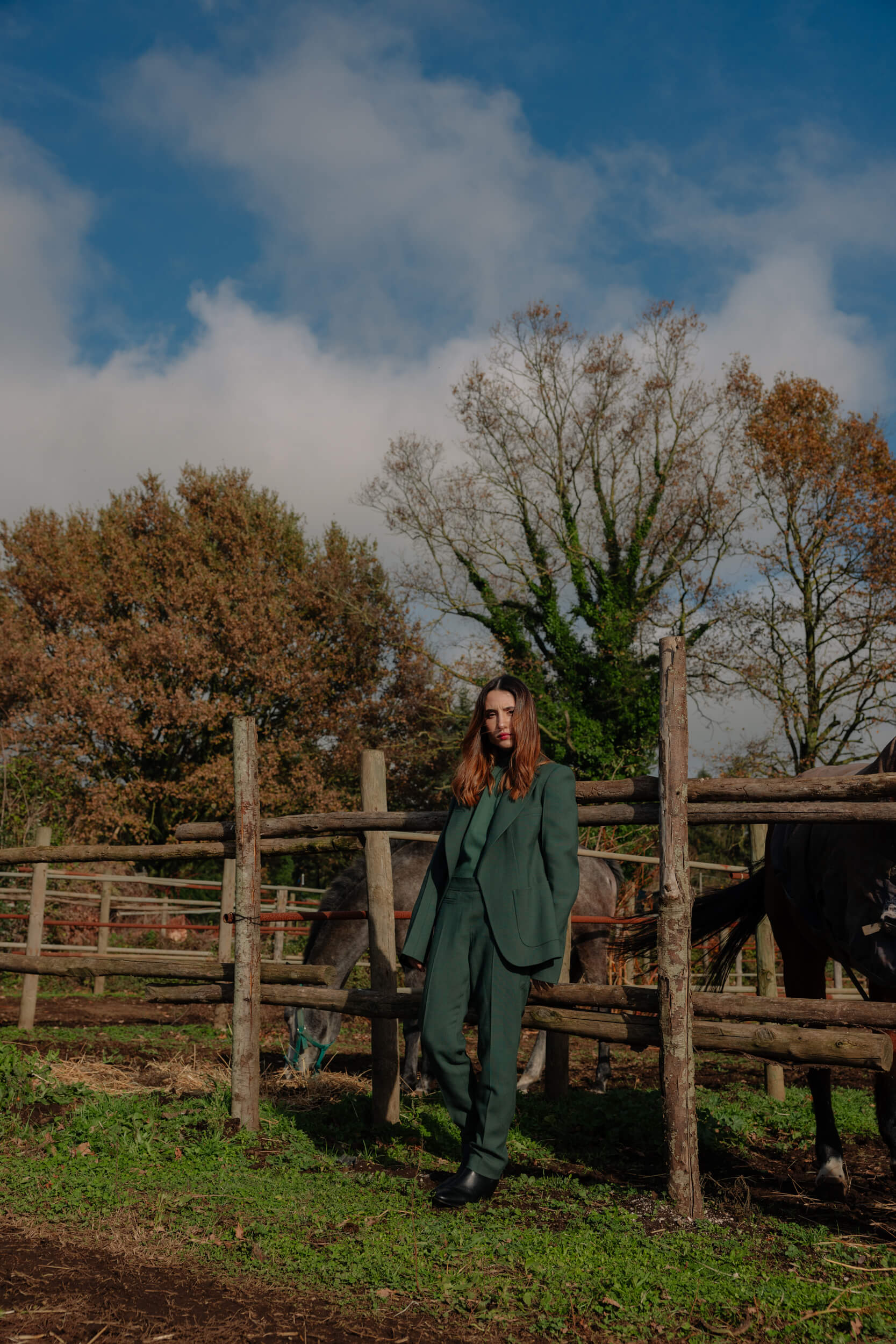
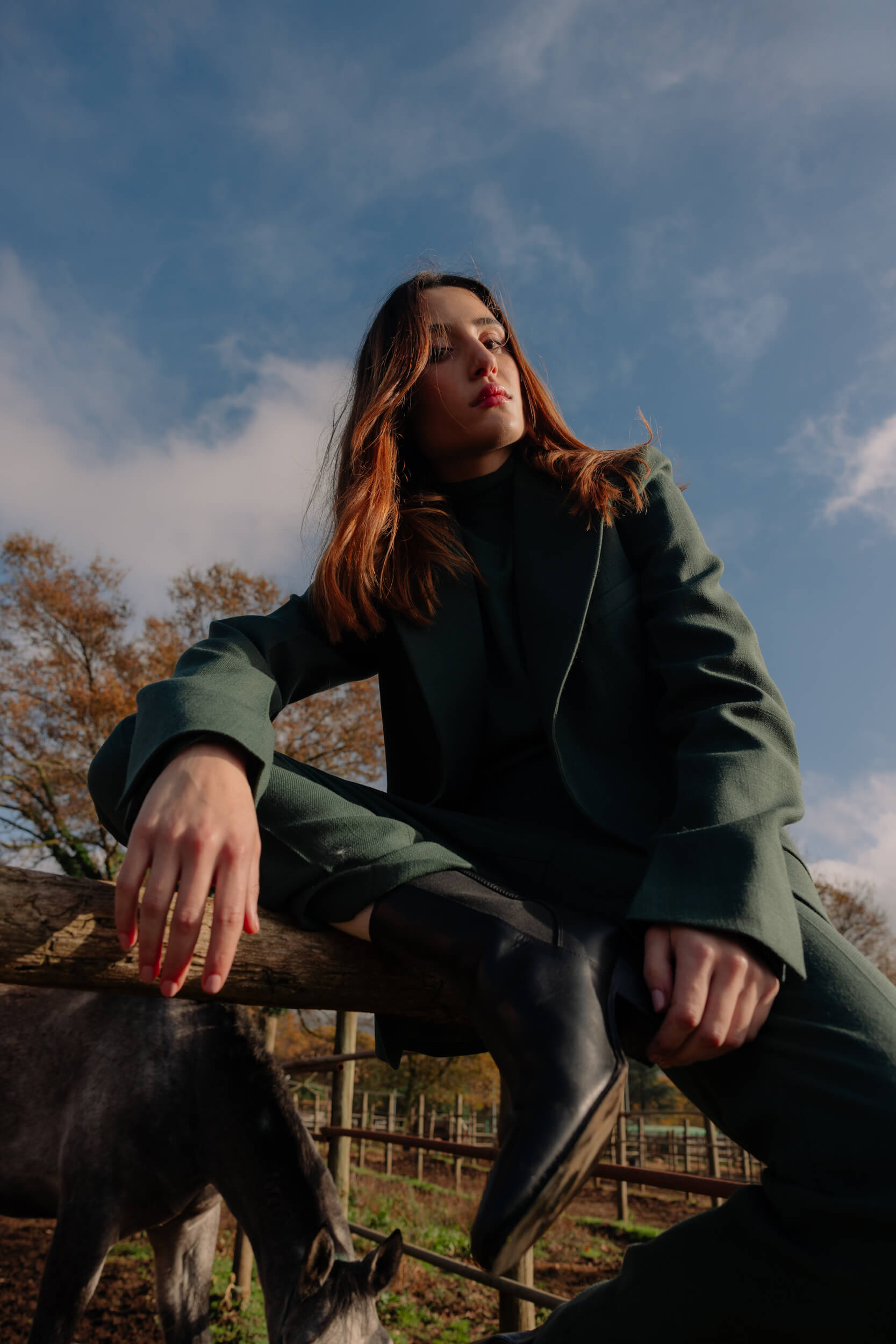
I noticed that Anna often appears frightened and hesitant, struggling to make eye contact when speaking, but at the same time, she’s very decisive when she needs to respond/defend herself. How did you merge these two aspects of her?
Vito and I discussed this extensively: Anna is a character who has lived in prison, so obviously, her life wasn’t life but survival because in prison, you “fight” for survival, with turbulent pasts behind them. So, when she comes out of prison, she feels almost like a child stepping out of her room and into the world. She can’t face the gaze of others because it’s a look that would make her a person of the future, seeing her as she would like to be seen, and that’s why we worked a lot on avoiding these looks, even though Anna starts to look Antonio in the eyes at a certain point.
We merged these two parts of her through a gradual process, always focusing on the importance of silence. Anna carries a heavy burden, and her punishment continues even outside the prison because it’s a pain that will never heal. That’s why it’s others who look at her, while she never looks back.
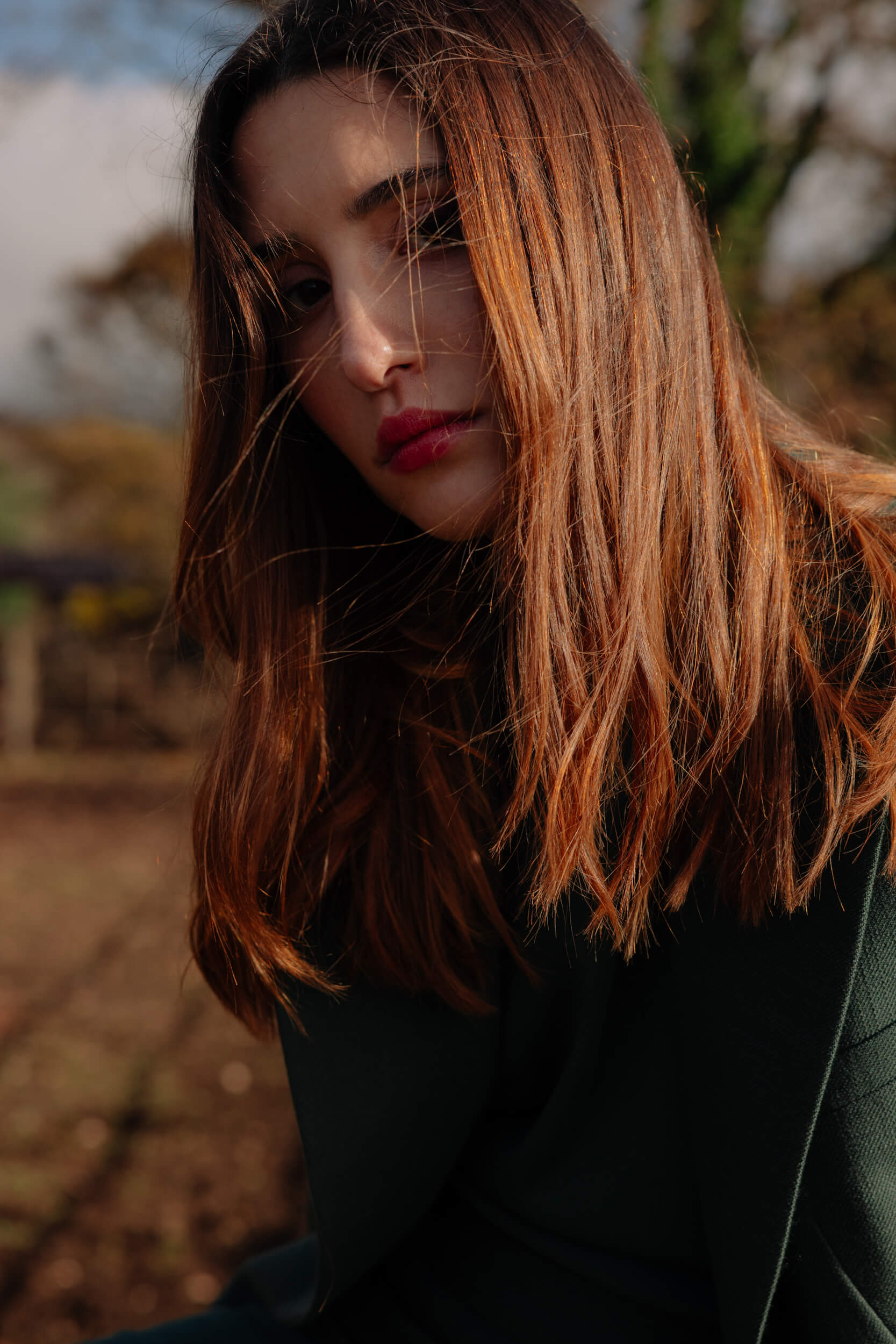
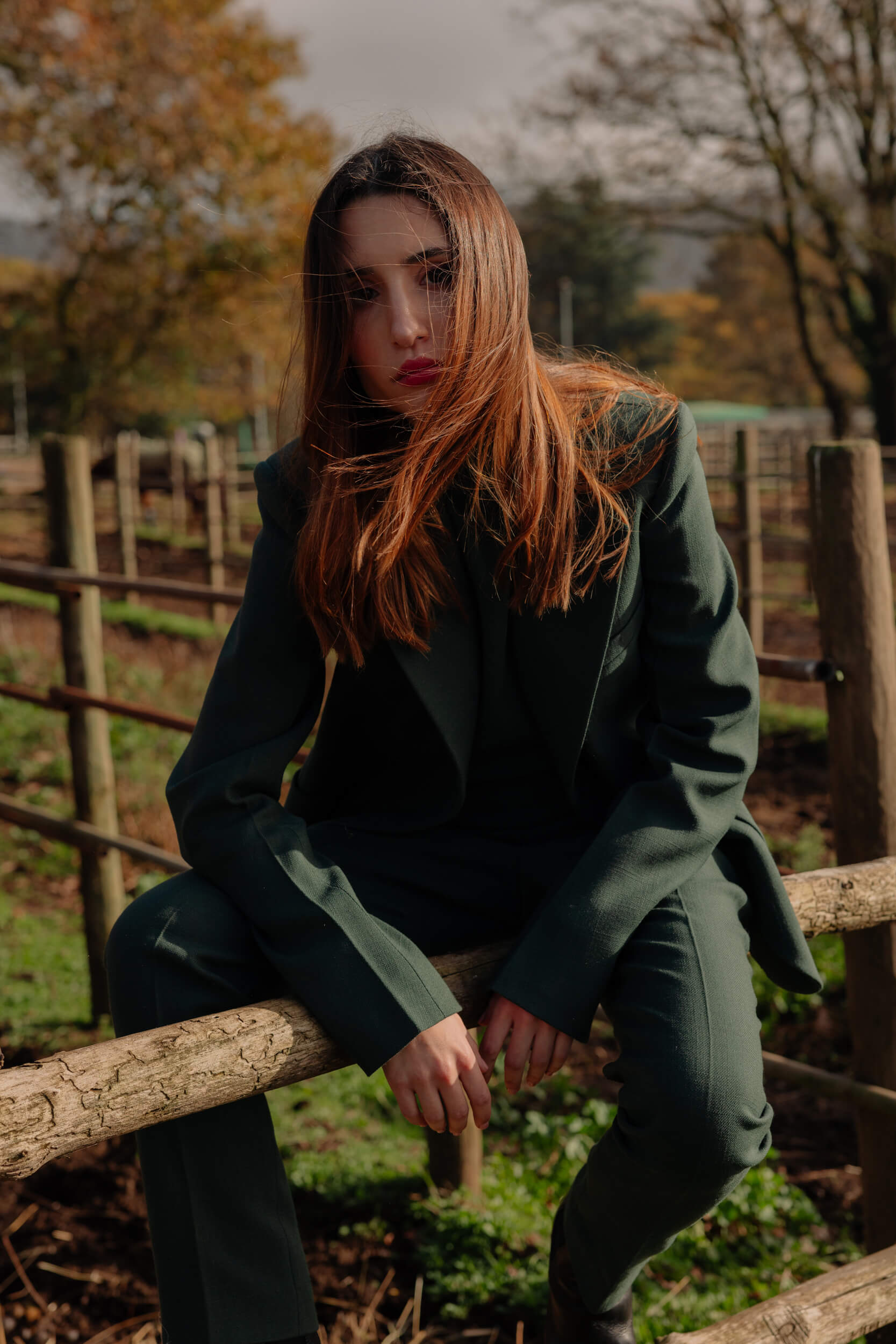
“SILENCE”
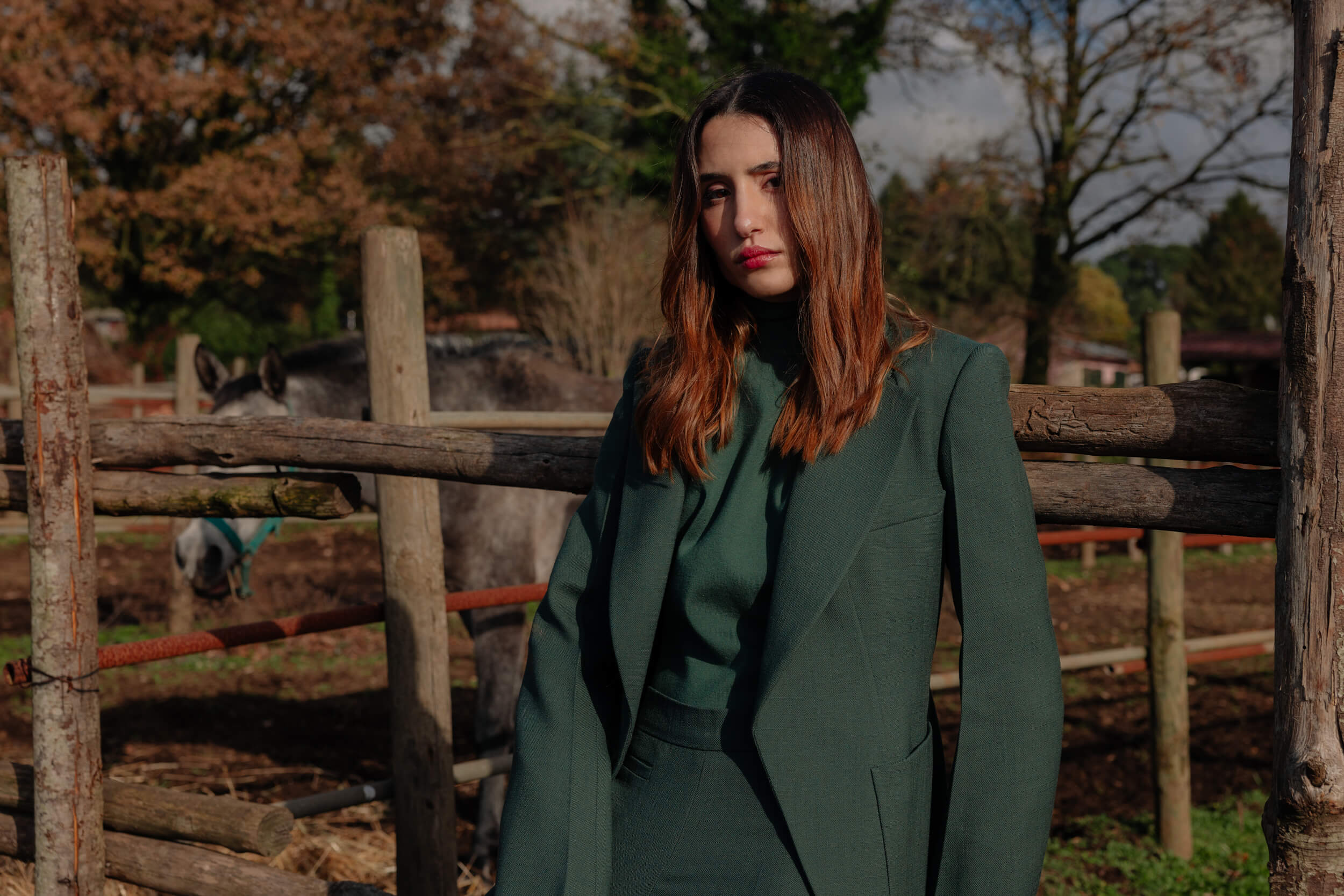
A theme of the film is also “taking time to feel good”. How important is it for you personally to have time to feel good?
It’s very important. I have to say that in the past year, I’ve been trying to find much more time for myself. From 18 to 25, I never really thought about it much; I was always in a hurry. However, this past year, perhaps because I’m entering another phase of my life, I’ve decided that everything I do, I’ll do “for myself”: I’ll take more time for myself, starting with small things like getting massages occasionally, going to the gym, spending more time with family, friends, and people I love.
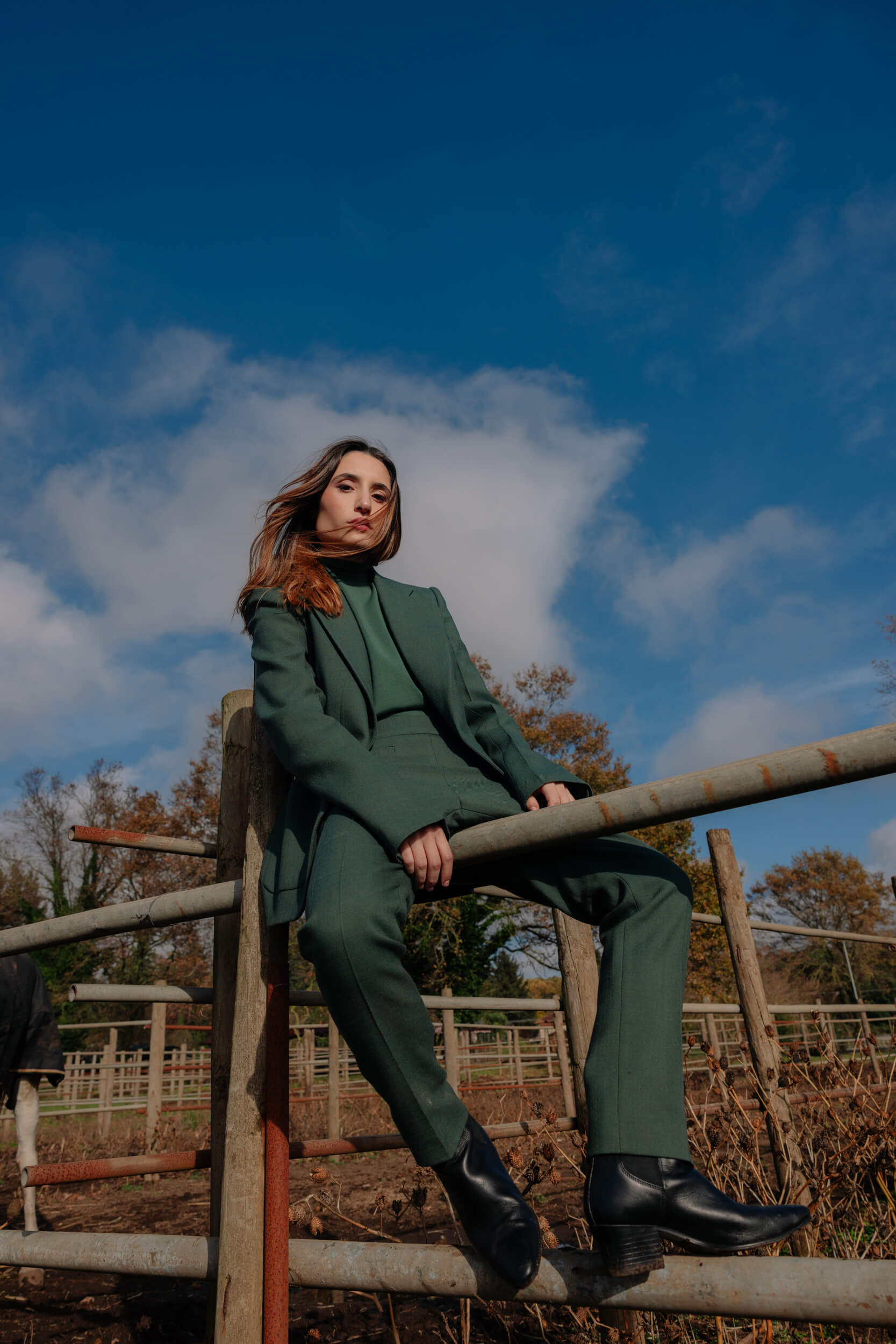
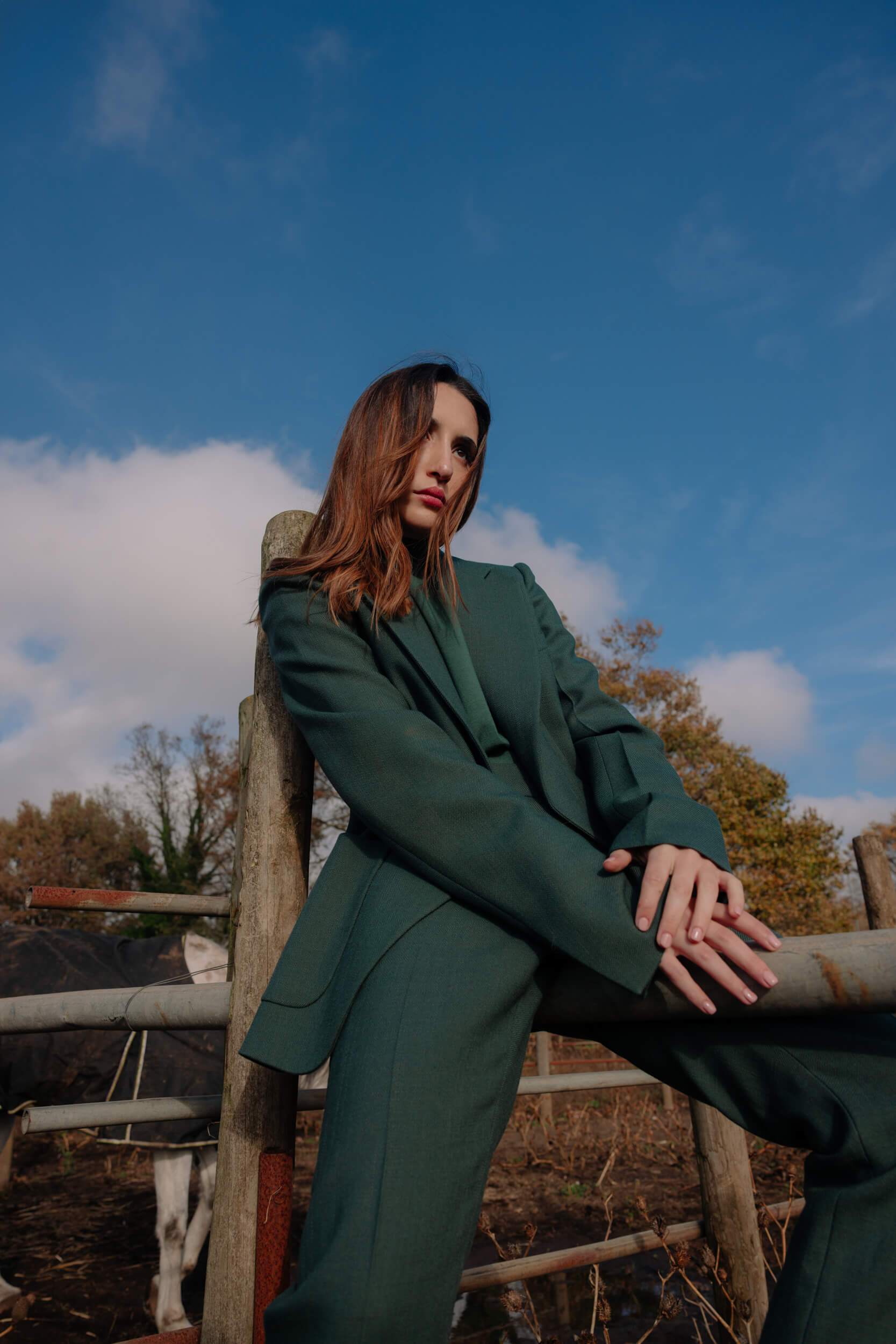
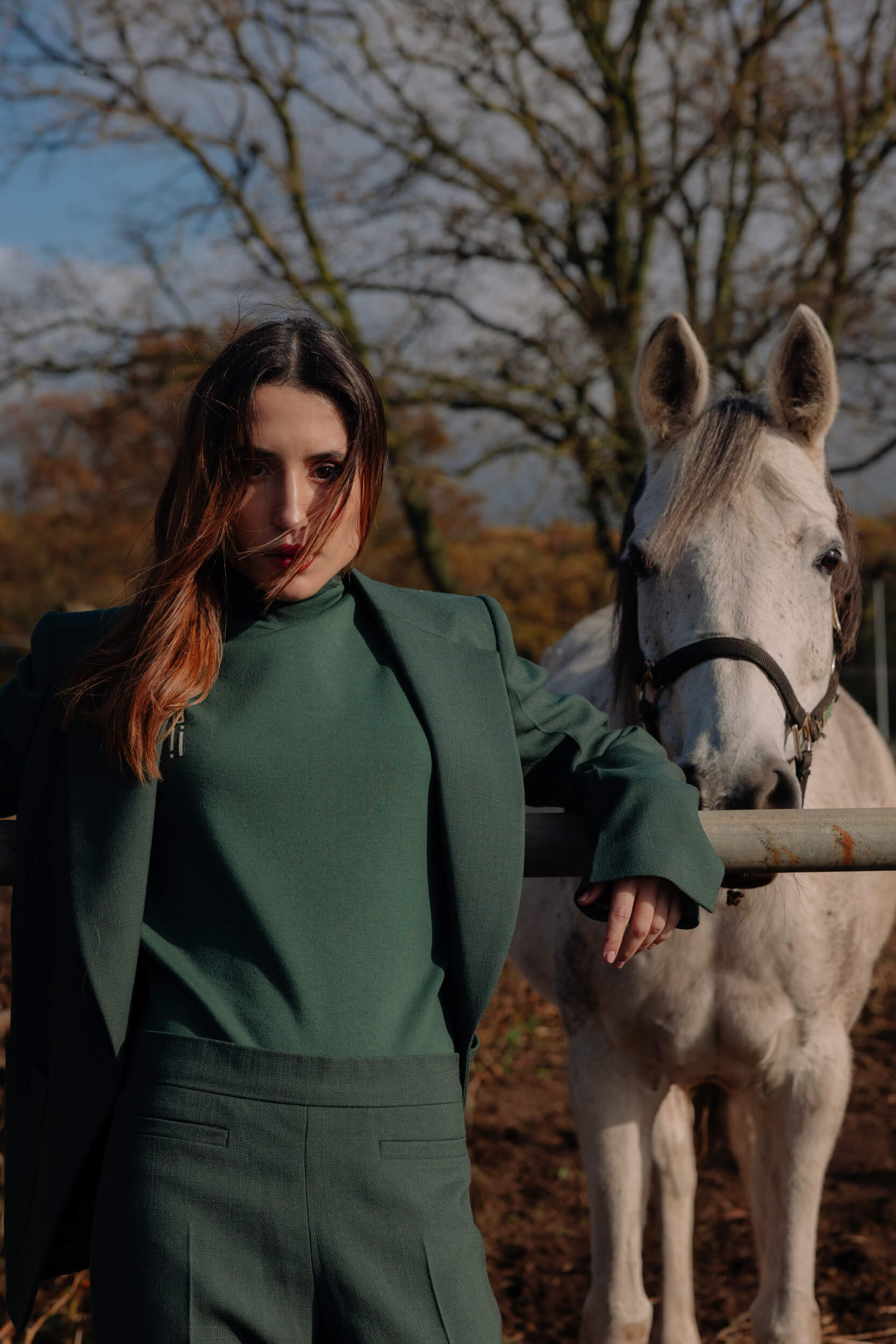
Certainly, as you mentioned, it’s also a consequence of age, of your growth, which is why you’ve also gained more self-awareness and can prioritize. Slowly, you understand that finding time to treat yourself better is fundamental and often comes before everything else.
Returning to the film, Antonio is afraid to start working on the bell because “it’s too important for everyone”. Have you ever been afraid to undertake a project for this reason? And then, did you do it?
I’m always quite instinctive: if I agree to do something, I’m not afraid to do it, I just dive in. I never had any fear about this project. Certainly, there was significant research because Anna is an important character, with a very significant past. If I start to get scared, I freeze, so I always try to go beyond what is “Marianna’s fear”, always putting the character first, their feelings, and life, which will then take shape.
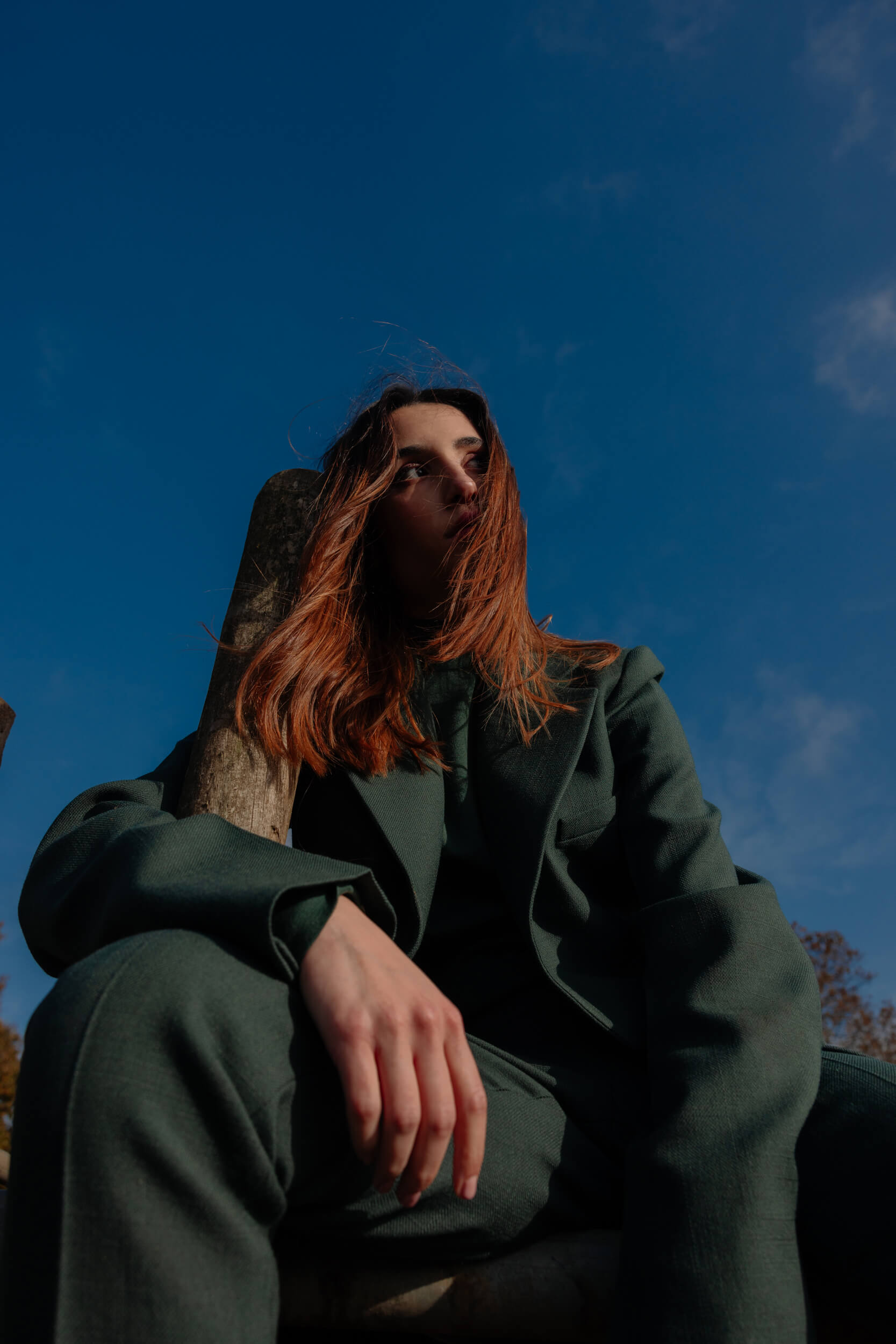
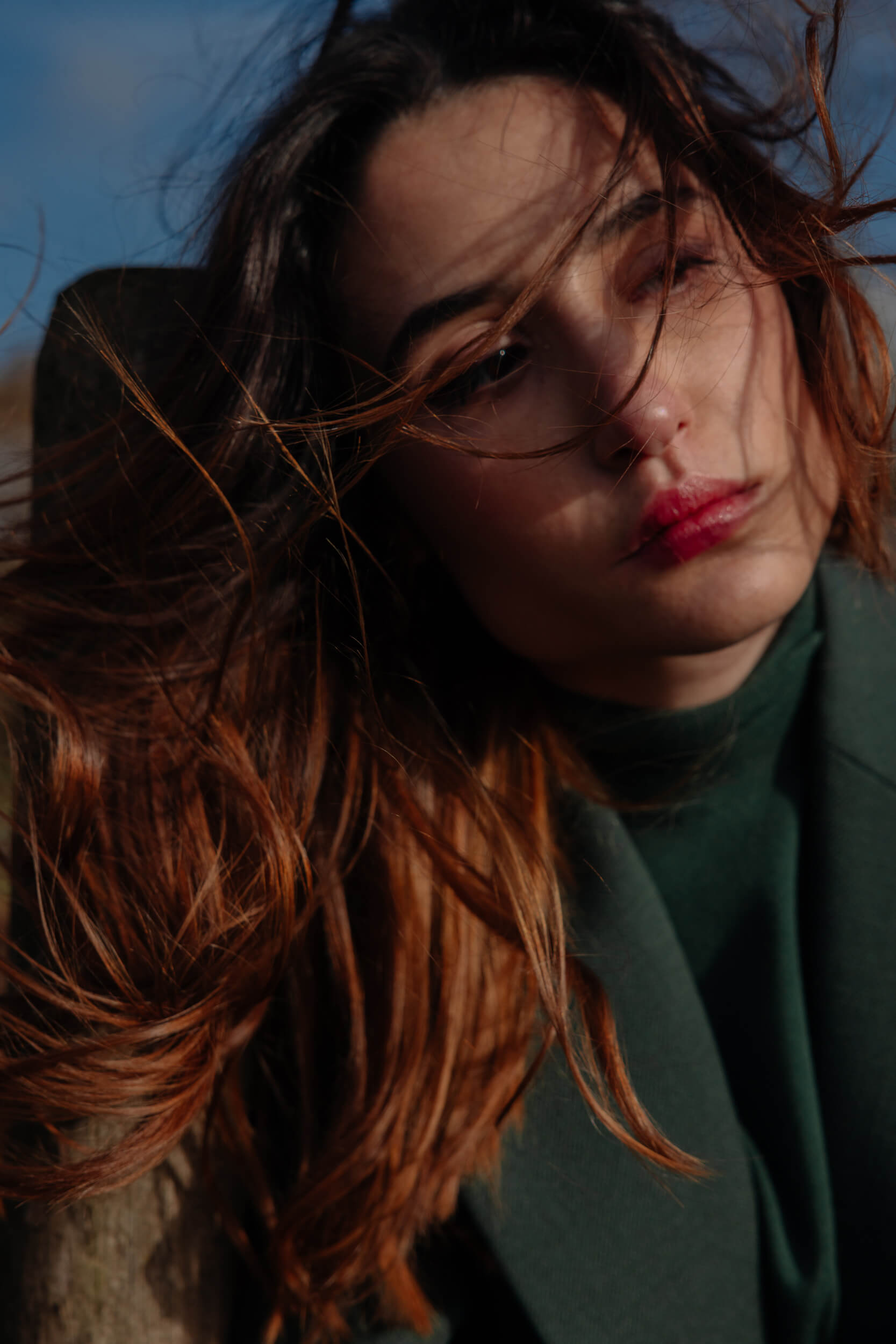
What’s the last thing you discovered about yourself? After this experience, perhaps, have you gained new awareness or learned something new about yourself?
I’ve always been a good listener, and lately, I’ve become even more so. This job, over time, has taught me to listen to others even more, and not to run away from situations because being very instinctive, I tended to flee. It’s been almost 10 years since I’ve been working in this environment, and lately, I’ve found that I can stay more present in things and simply listen. I did it before too, but differently, now I give it even more importance. Sometimes small gestures make a difference, like the clerk at the tobacconist who shows kindness to Anna, almost to make her feel included (even though we know she won’t always be kind), and that brief moment warms the heart a bit.
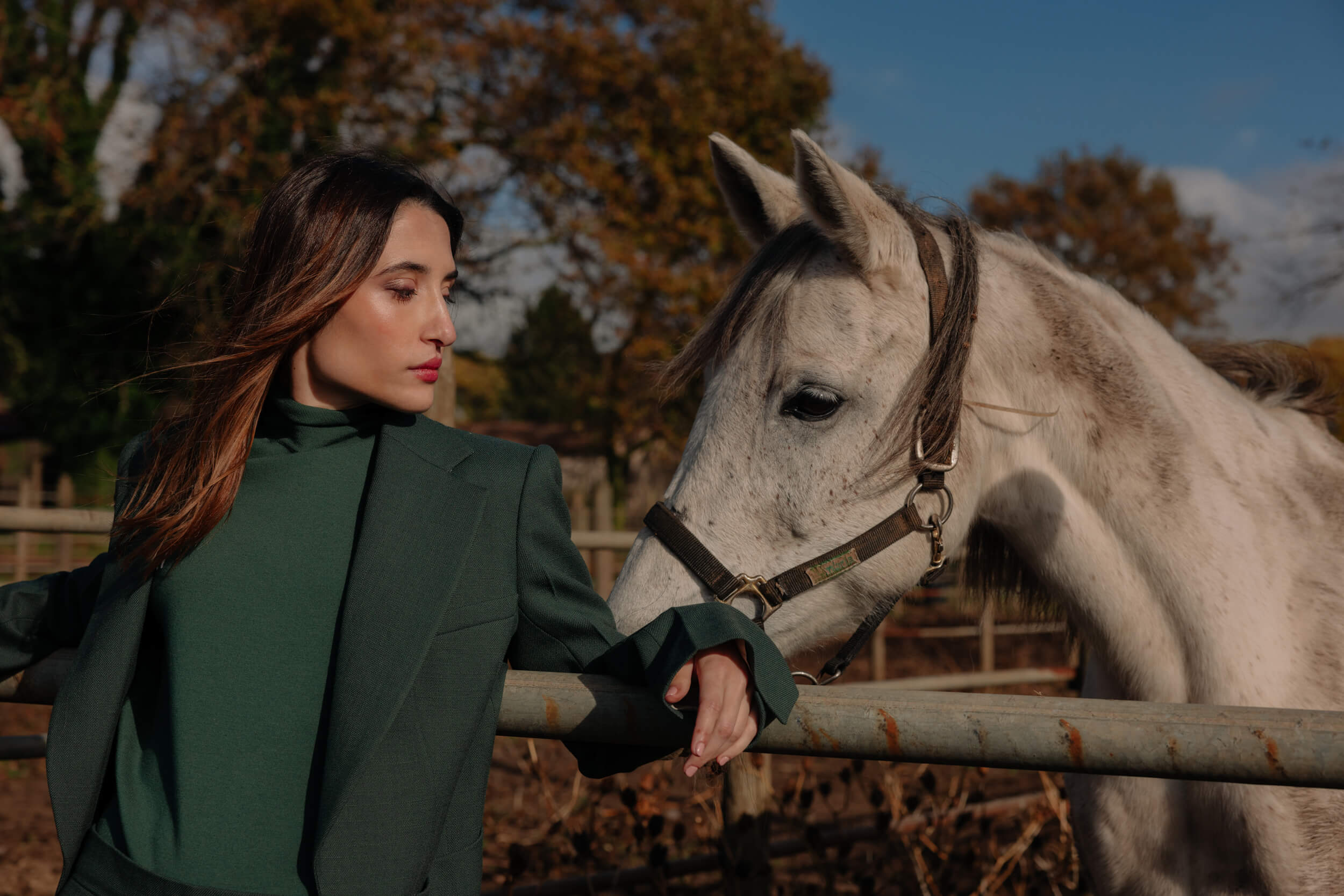
How important are small acts of kindness to you in everyday life?
Very important, I live for small gestures. A phone call, a coffee, a chat, and I’ll give you my all. It’s from these little things that human relationships are built, great friendships, and great love. I’m not always great at it, but whenever I can, I always try to do little things for others.
I also like to think about small acts of kindness towards strangers and how important they can be. They may seem trivial, but today, when we’re all in a hurry, they can change your day.
And when you find a lonely person and you, as a human being, perceive it, like Anna, who carries significant loneliness, doing a small act of kindness for him or her, like even just a smile, can be a great revolution.
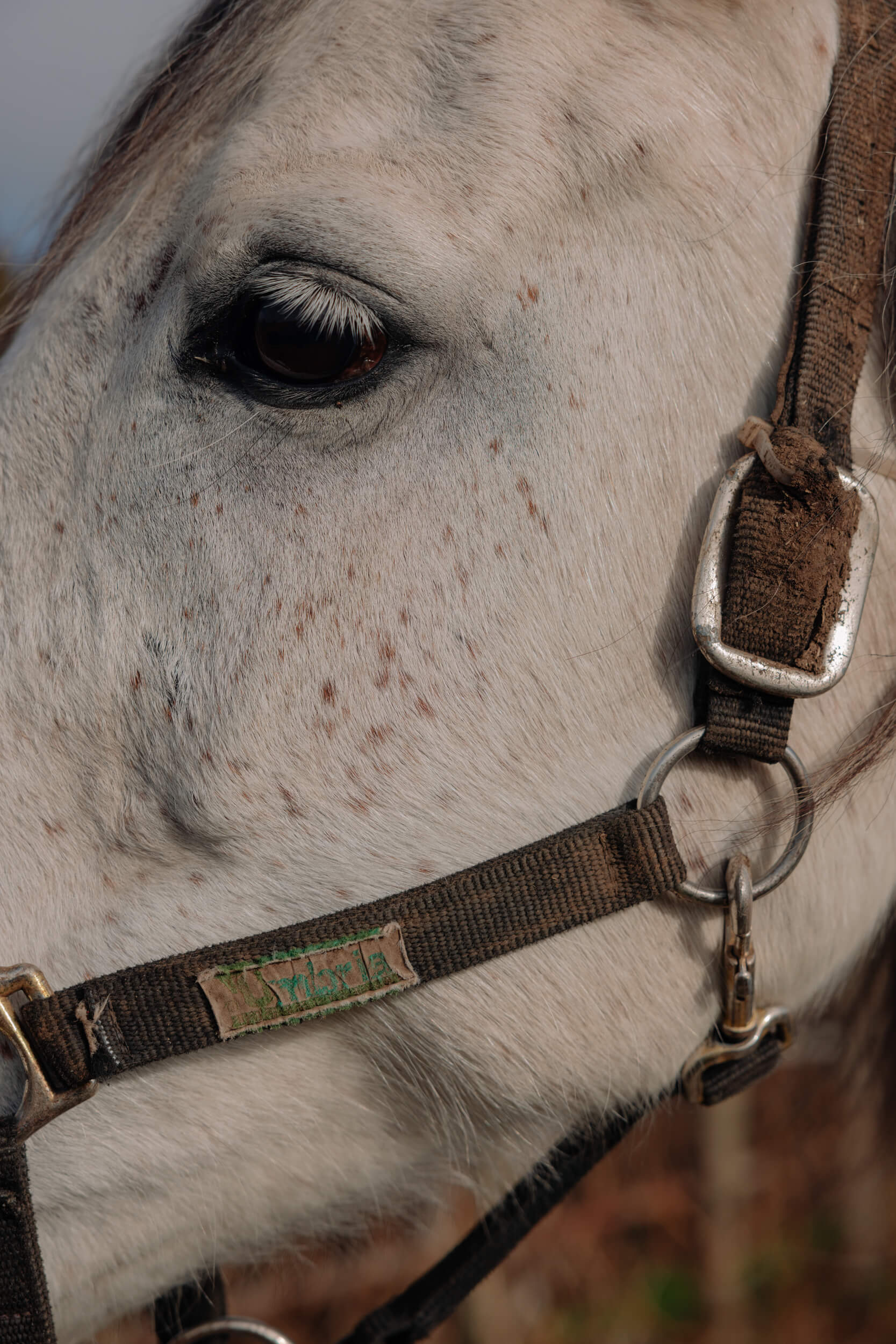
“It’s from these little things that human relationships are built, great friendships, and great love.”
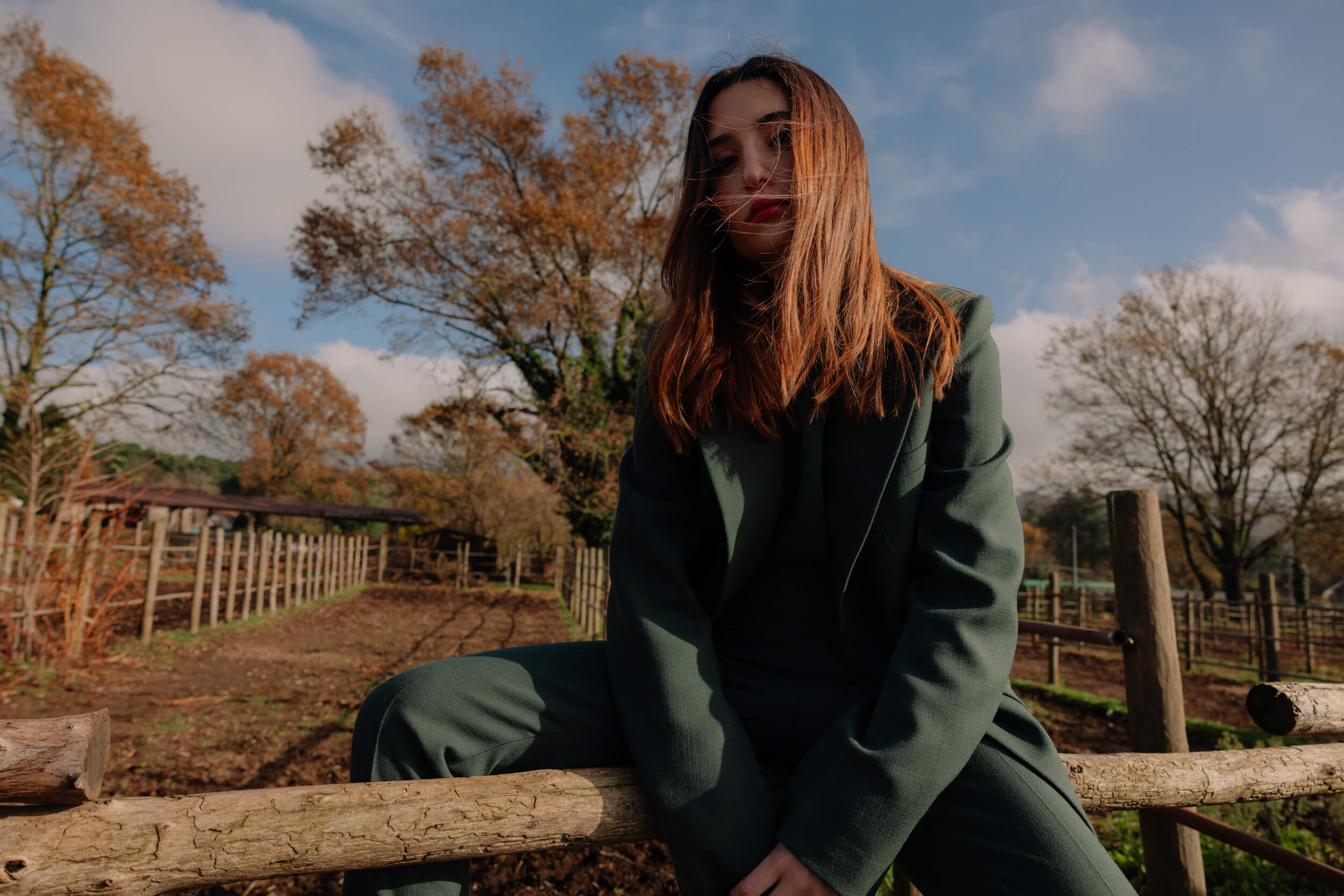
“Repair” is a beautiful word, whether it’s the work of a blacksmith like Antonio or the journey that Anna must undertake. What does the word “repair” make you think of?
I’ll start with the fact that I really like medicine. “Repair” is a word that conveys to me a sense of physical and spiritual “healing”, and indeed, for me, “repairing” means trying to soothe a person’s wound and put pieces together, fixing, building a house brick by brick. So, the word “repair” gives me the image of a house in disarray being put back together. We live in the house, and in fact, it represents a bit of ourselves. Then, it also makes me think of a cream applied to a wound.
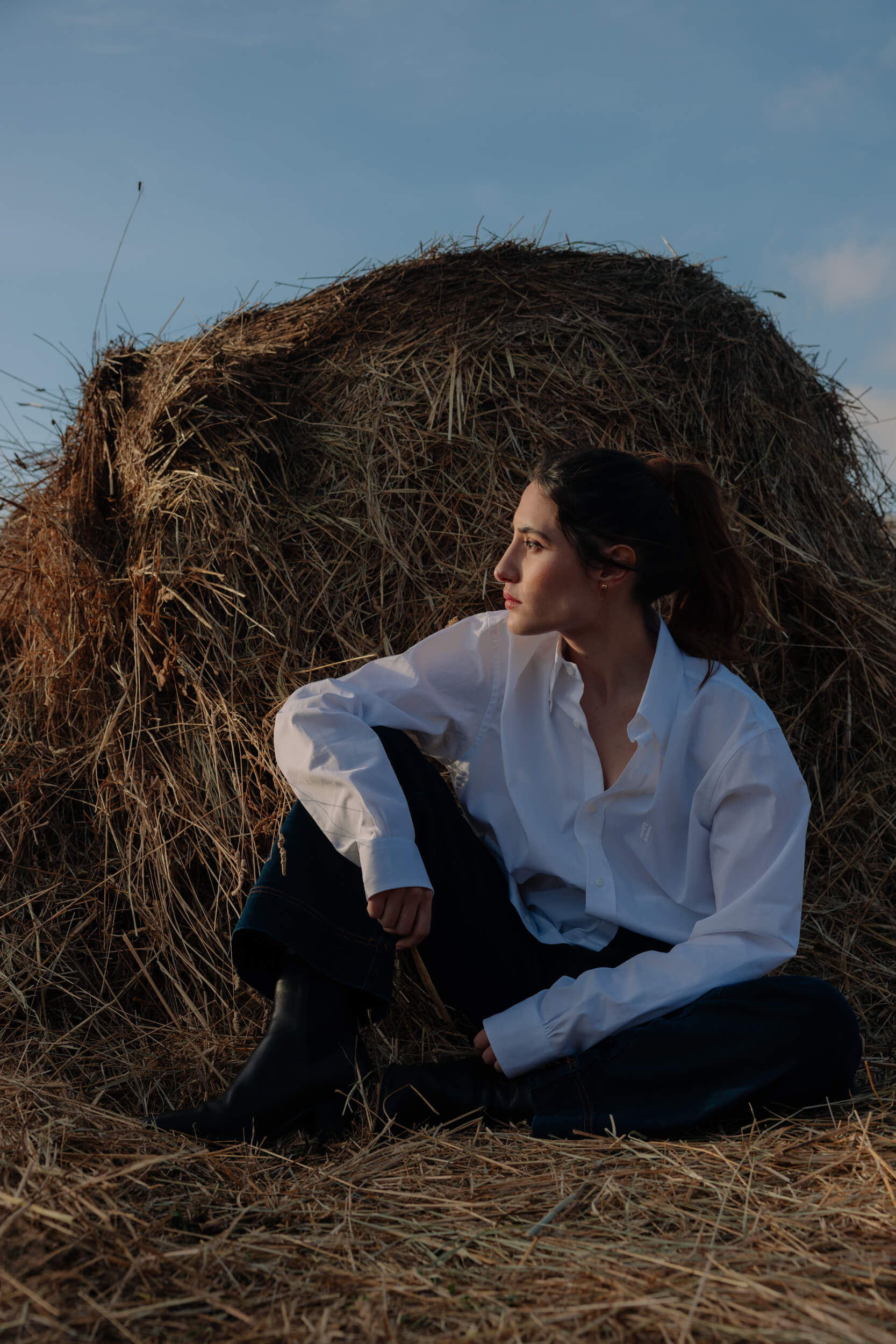
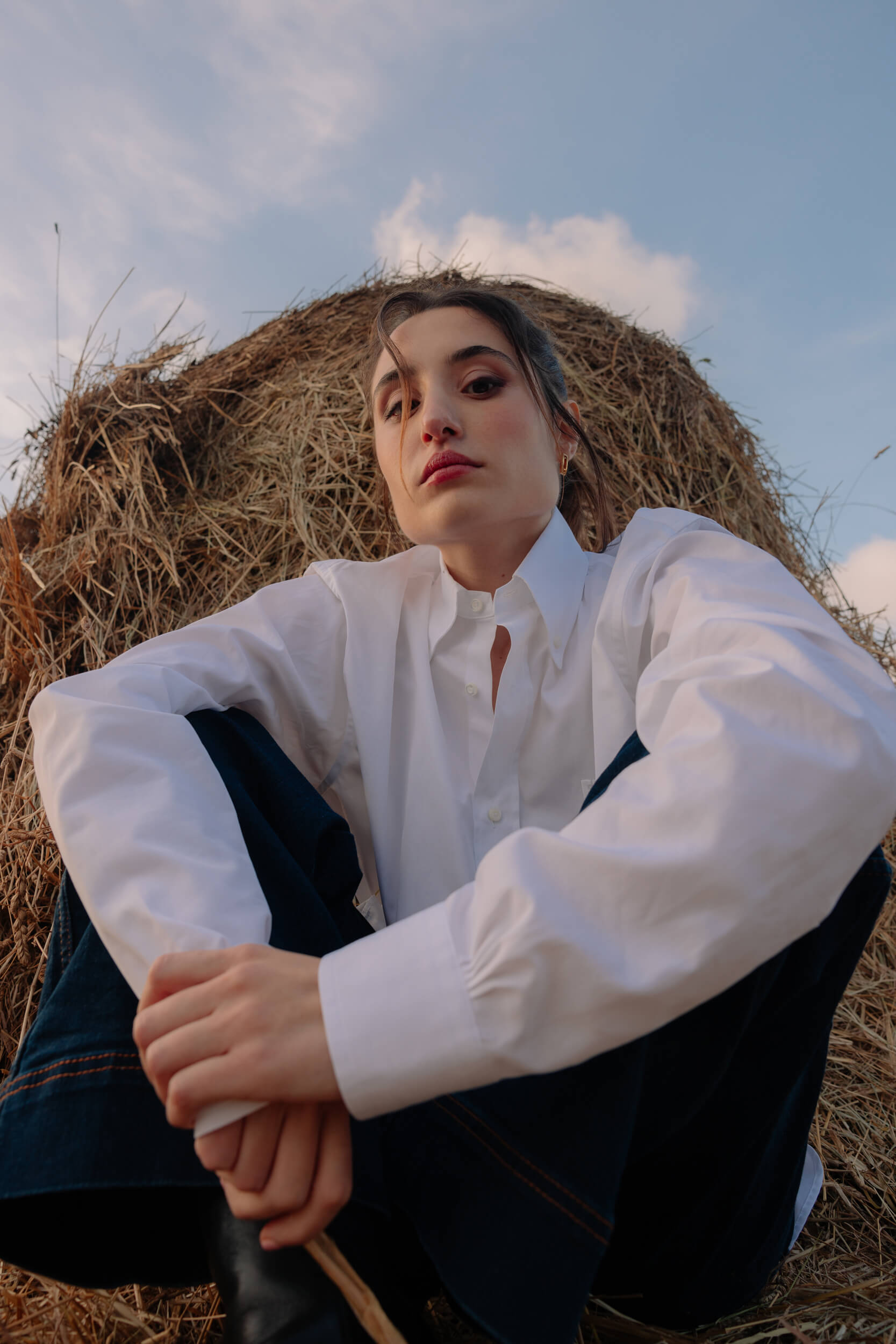
The film talks a lot about forgiveness, of others, of what seems impossible, like that of the mother… but perhaps what we give, or don’t give, to ourselves is the most difficult, don’t you think?
Anna hasn’t forgiven herself, even though she went to a new country to try to rebuild her life; she will never forgive herself for what she did, especially because she understands the gravity of her mistake. Despite the process of repair, her wound will always remain open. I liked Anna’s character a lot because she constantly tries to revolutionize and improve herself, and that’s a very beautiful thing.
I wonder: who am I not to forgive a person who may have understood their mistake? I see a lot of humanity in this element of forgiveness, I believe it’s visible when a person hasn’t forgiven themselves or has made a mistake and understands. Anna certainly tries to make a new life for herself, but her past will always haunt her. Past things, yes, they’re in the past, but they always stay inside you; you can improve, of course, but when you make significant mistakes, it’s complicated.
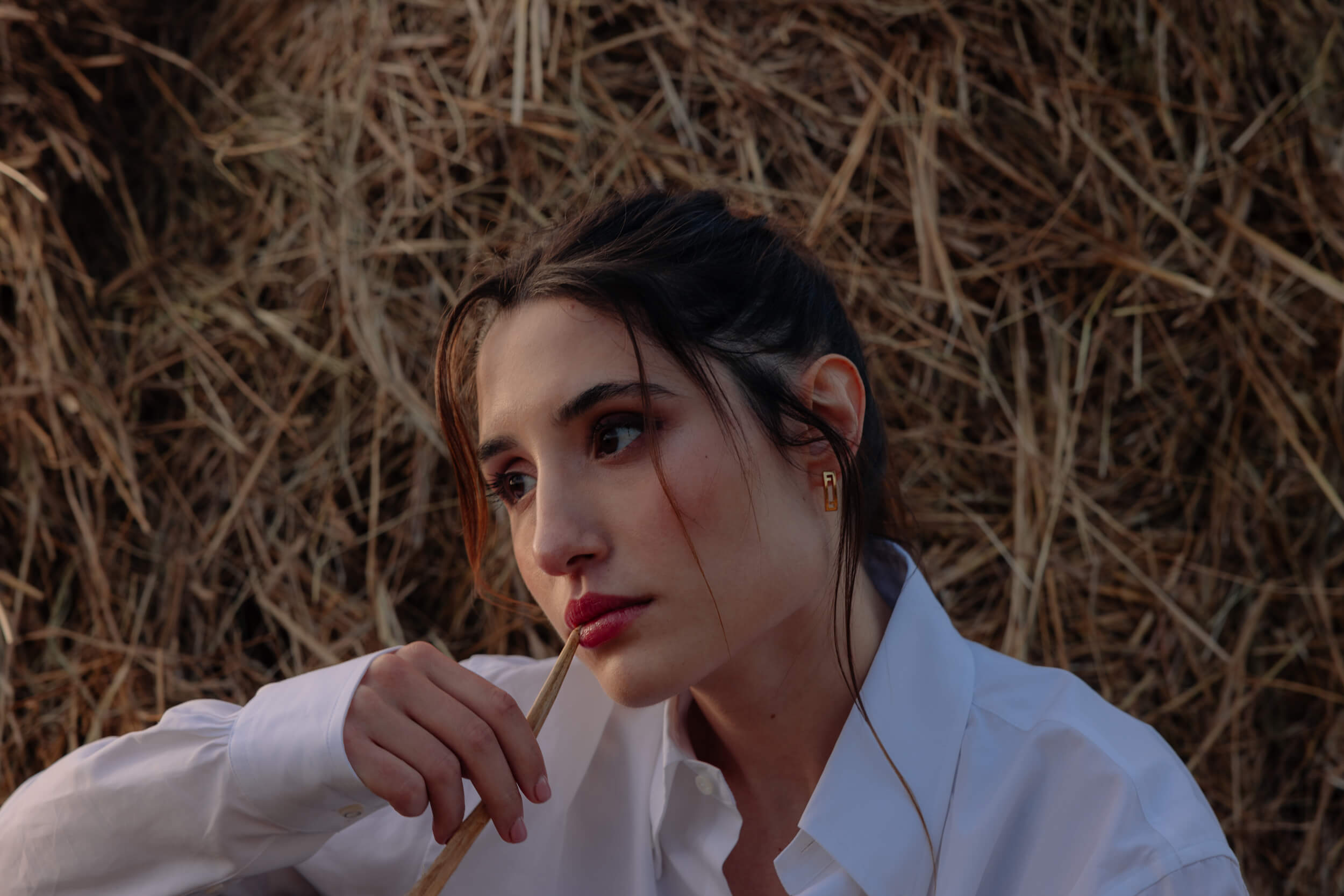
“Past things, yes, they’re in the past, but they always stay inside you.”
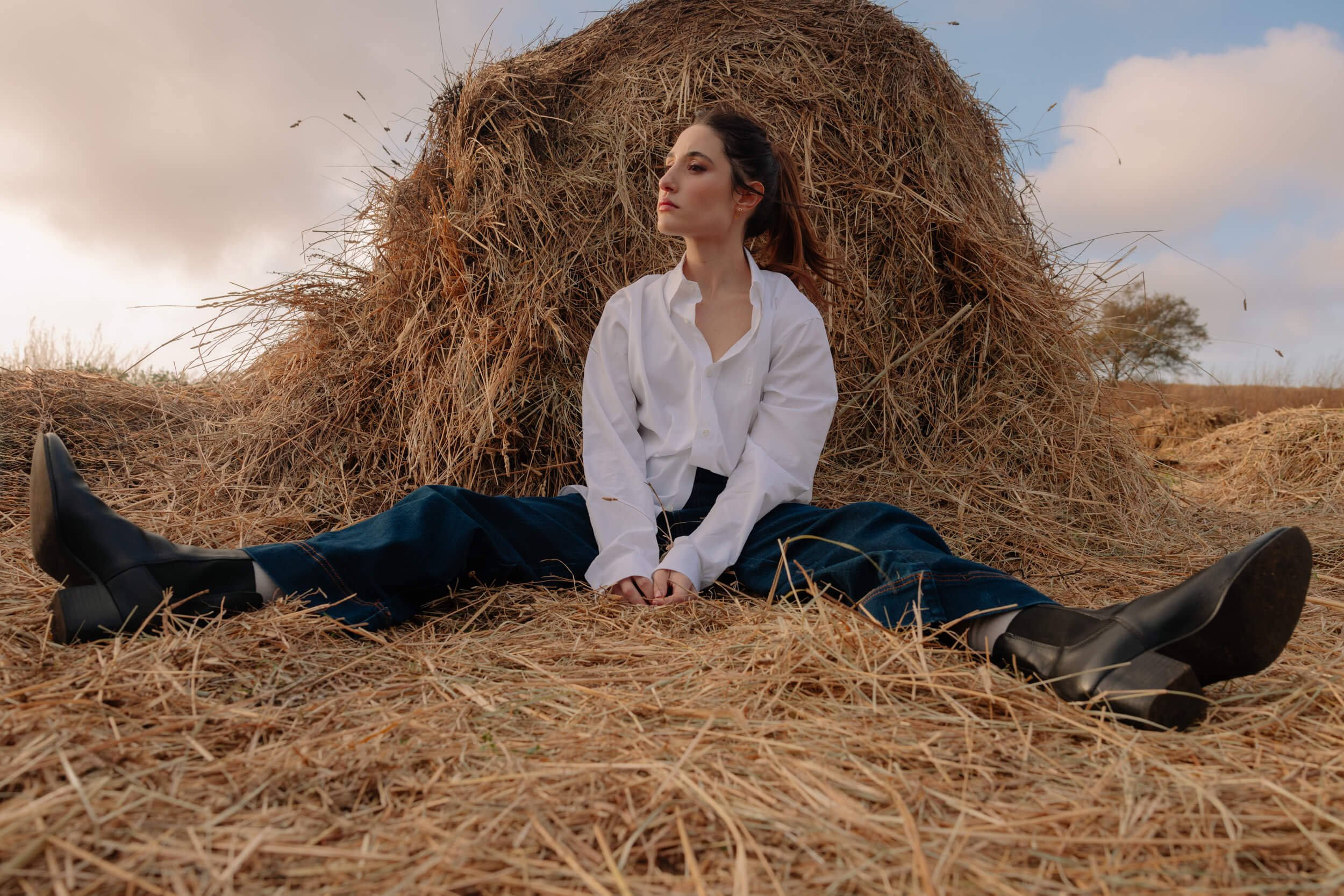
Water in the film represents death, but towards the end, also salvation and then resignation… What does it represent to you instead?
I drink a lot of water, for example, and I find it a very fascinating element. It gives me a sense of femininity, perhaps because we’re already in the water in the maternal womb. In this film, it was very important to work on this element and the sensations it conveys. Anna’s immersion is indeed resignation, but also a kind of acceptance of what she has done. In the final monologue, she says, “This is who I am, I did this, and I can’t hide anymore”. So, she accepts what she’s done and, in a sense, resigned as well, as you said.
I’m from Caserta, but I’ve also lived in Naples, so the sea is something I feel very much: I always need to go back to Naples and see the sea. The sea gives me new energy, even just its smell. Water, in short, also because it’s purified, and nourishes the earth, is an element that fascinates me a lot.
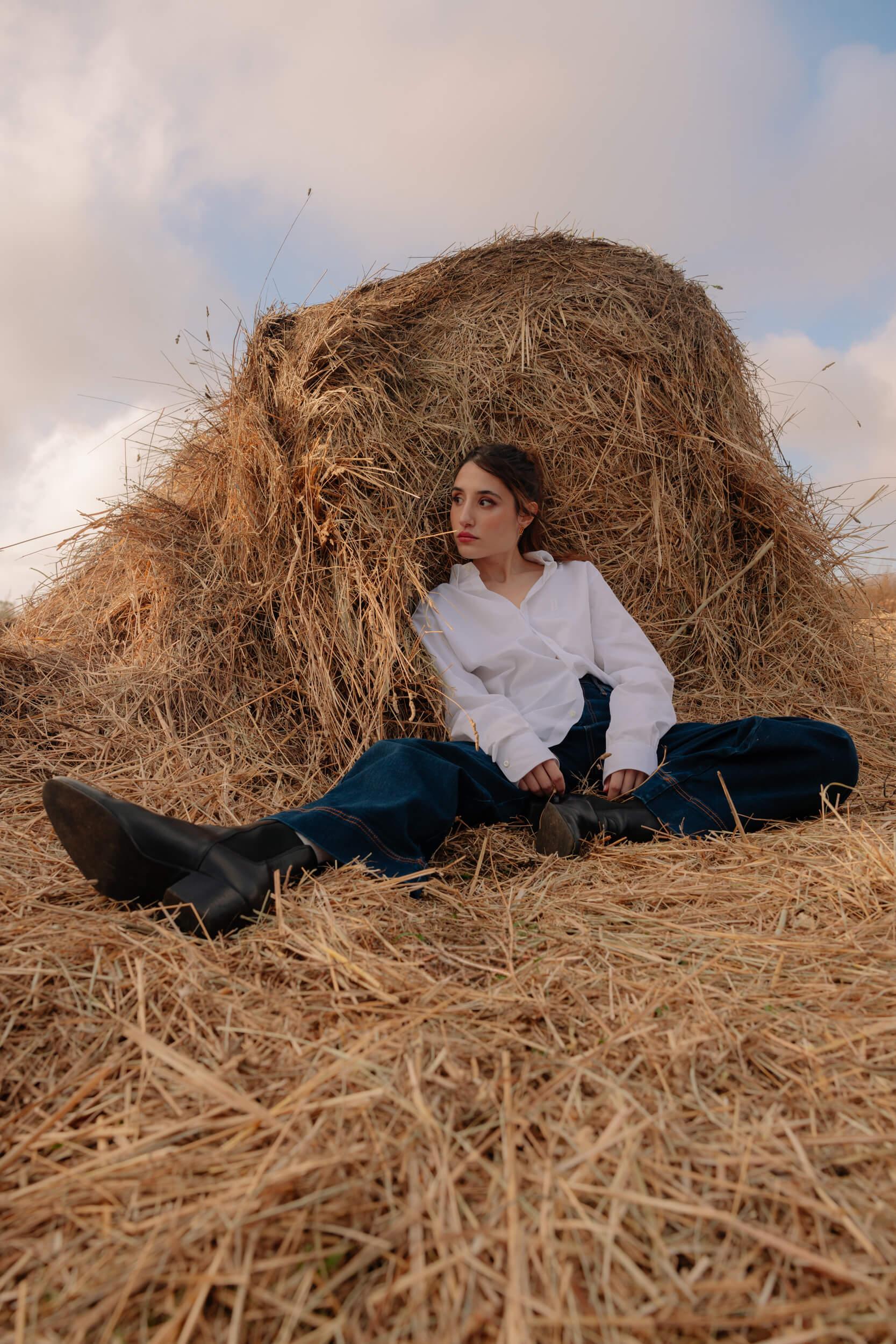
In an interview, the director talked about the importance of details in the landscape as a metaphor for the protagonists’ emotions. How did you find a way to express this symbolism through your interpretation and interactions with the surrounding environment?
I didn’t know Peccioli, it’s a beautiful city, and the food there is excellent. Before filming the movie, Vito and I went there for some location scouting, and immediately I felt a connection with the character. It’s a very emblematic town; just think of the landfill as a place where waste and toxic waste are brought: in that place, however, what may seem like waste is brought to a beautiful place with a special, good smell. Shooting there was crucial for this character because it’s a place that fully represents him, metaphorically speaking: it’s the place of rebirth, where you don’t breathe dirty air, it’s pure, even the people are, it’s a very welcoming village, although Anna takes a bit of time to settle in the film.
I immediately felt that only in Peccioli could that story be filmed, with that character there.
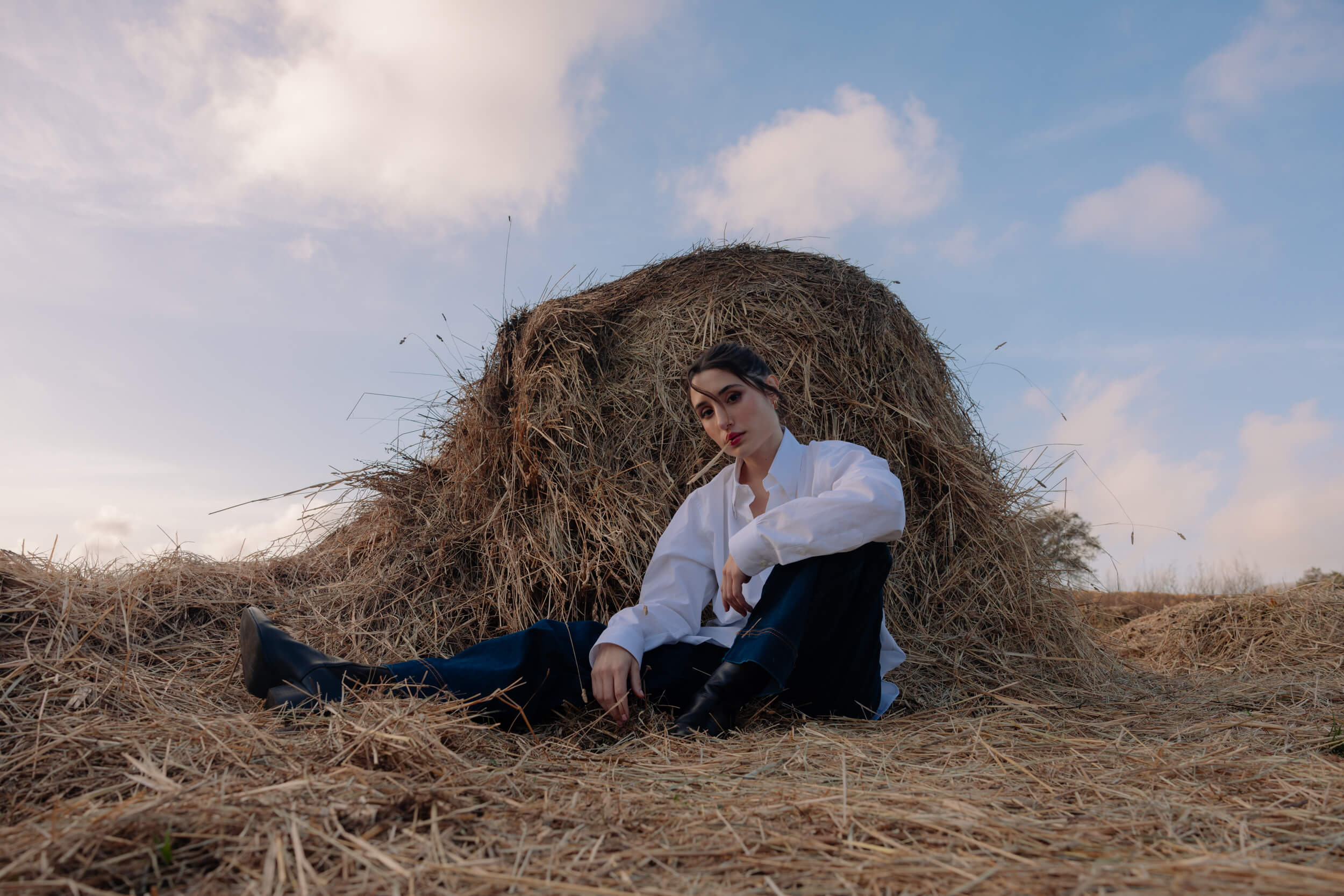
And you can see it in the film. Then, there’s beautiful photography, images that fit perfectly with the characters’ emotions.
“The Second Life”: you, Marianna, what would you do in a second life?
What a question, I often wonder! In a second life, I would certainly have done something artistic. Music, cinema, and art, in general, have always appealed to me. The profession of a doctor has always fascinated me too, but I don’t know to what extent I would go, because I’m quite hypochondriacal! I’ll tell you the truth, in a second life, I would do what I do in this one, I don’t know where or how, but I would always stay in the world of art.
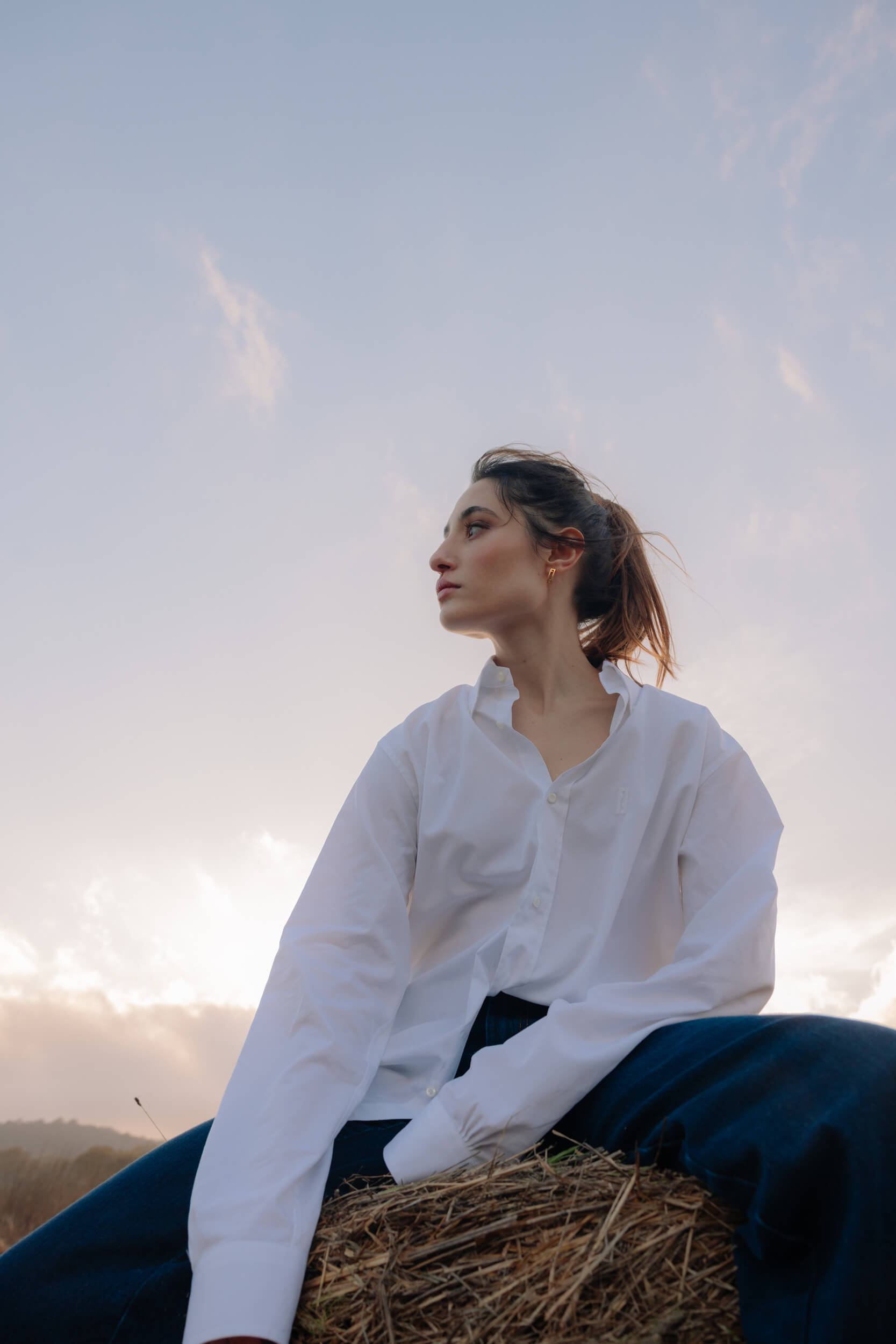
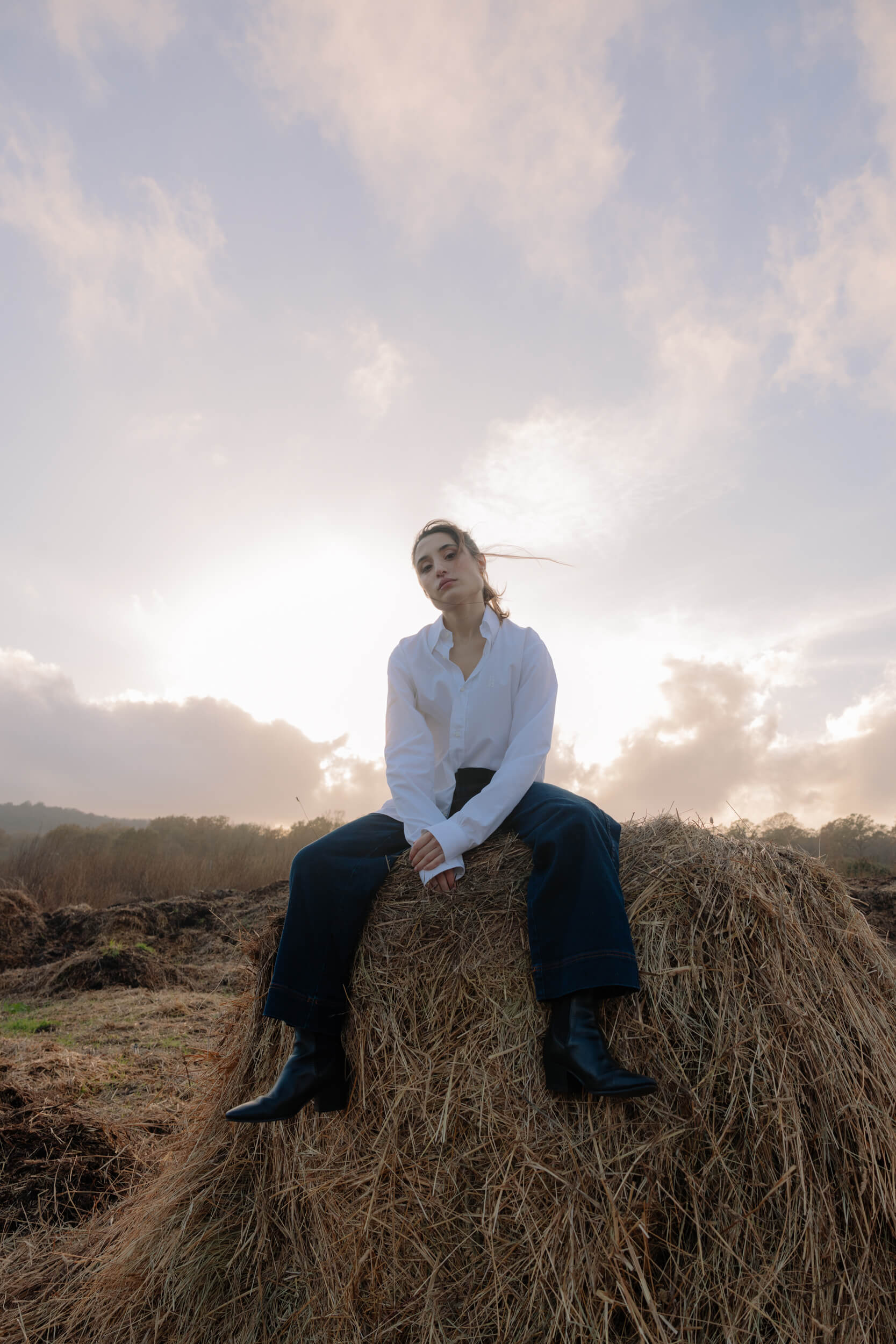
What was your greatest act of rebellion?
You know, maybe it hasn’t happened yet? It’s an important act, so you have to step outside the rules… In my case, maybe moving from a small town to a city could have been an act of rebellion, as well as doing the job I do and always believing in it. It’s a difficult job, it doesn’t give you security, especially if you’ve been doing it for a while. So, my act of rebellion was to believe in this, to have the chance to do it quite early on with very beautiful films that helped me a lot to grow.
Believing that I can do this in the future, I think, is a great act of rebellion.
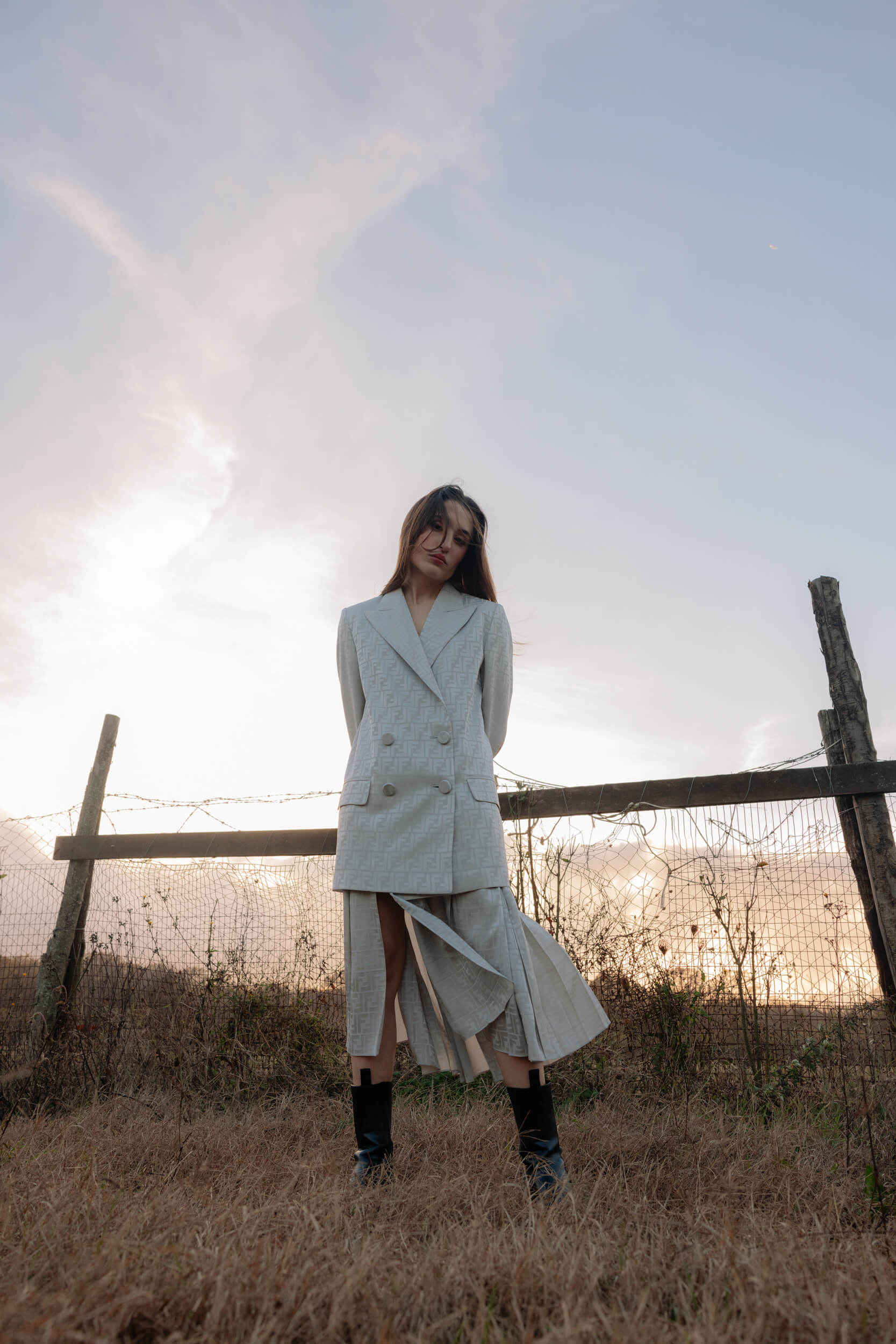
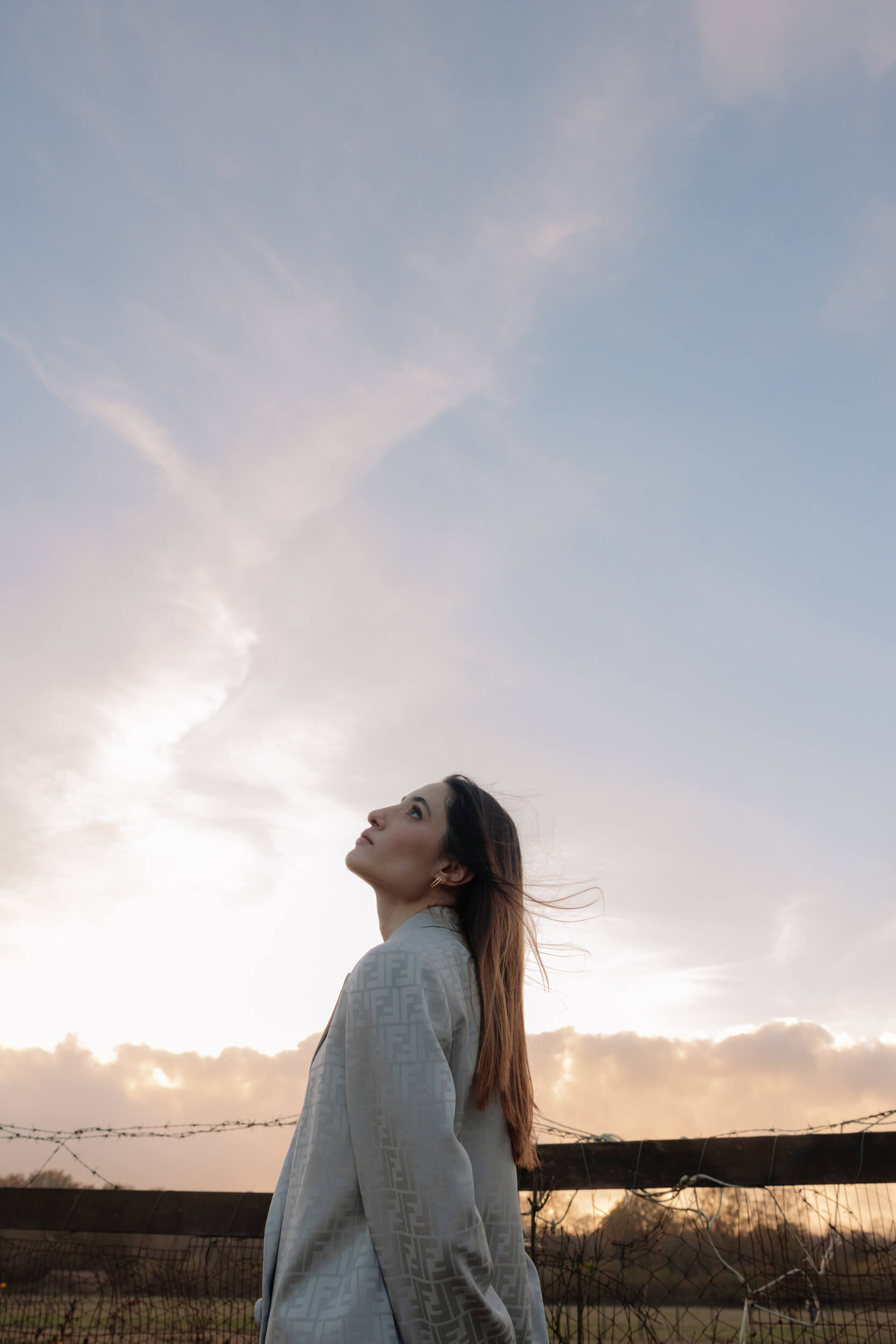
“BELIEVING THAT I CAN DO THIS”
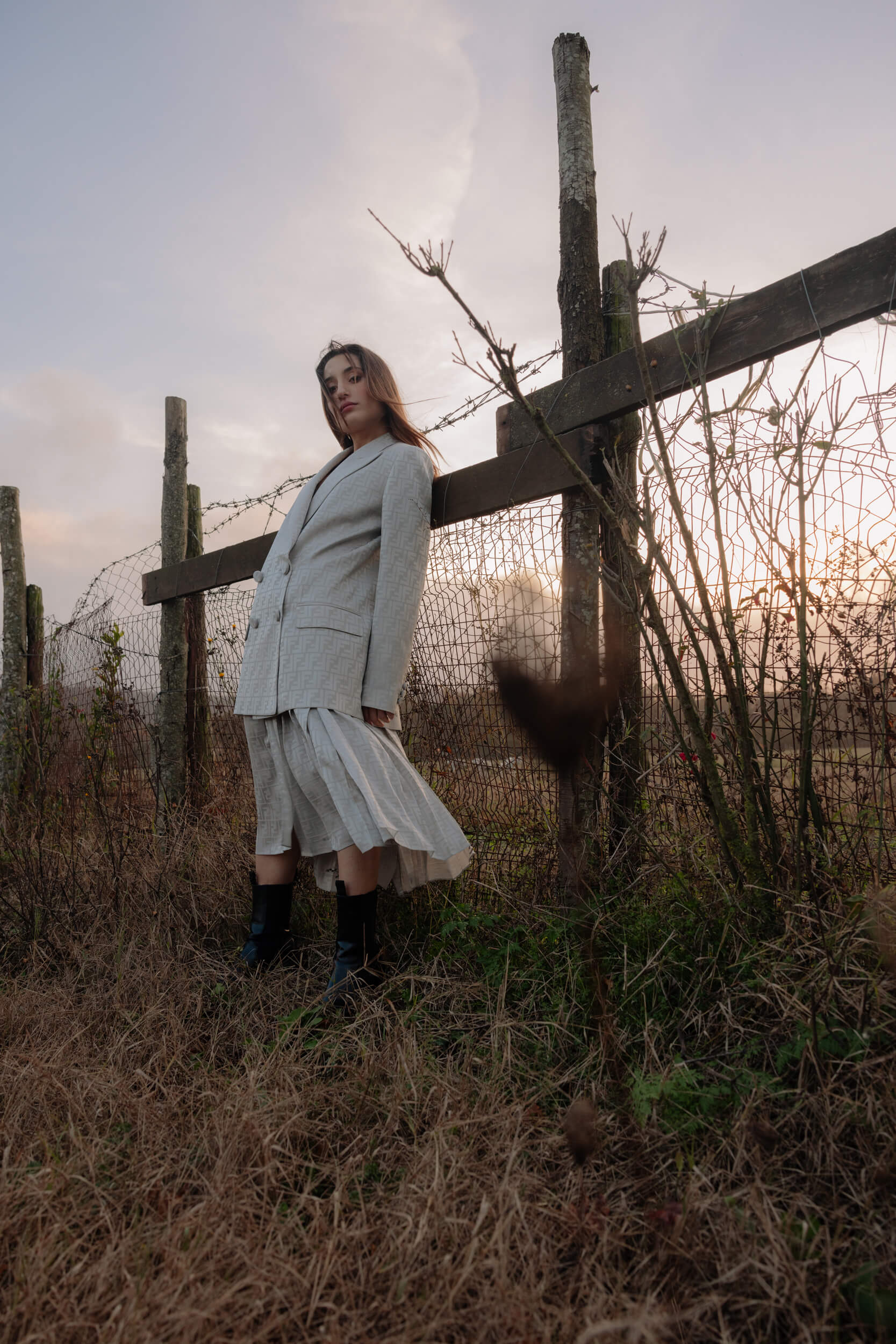
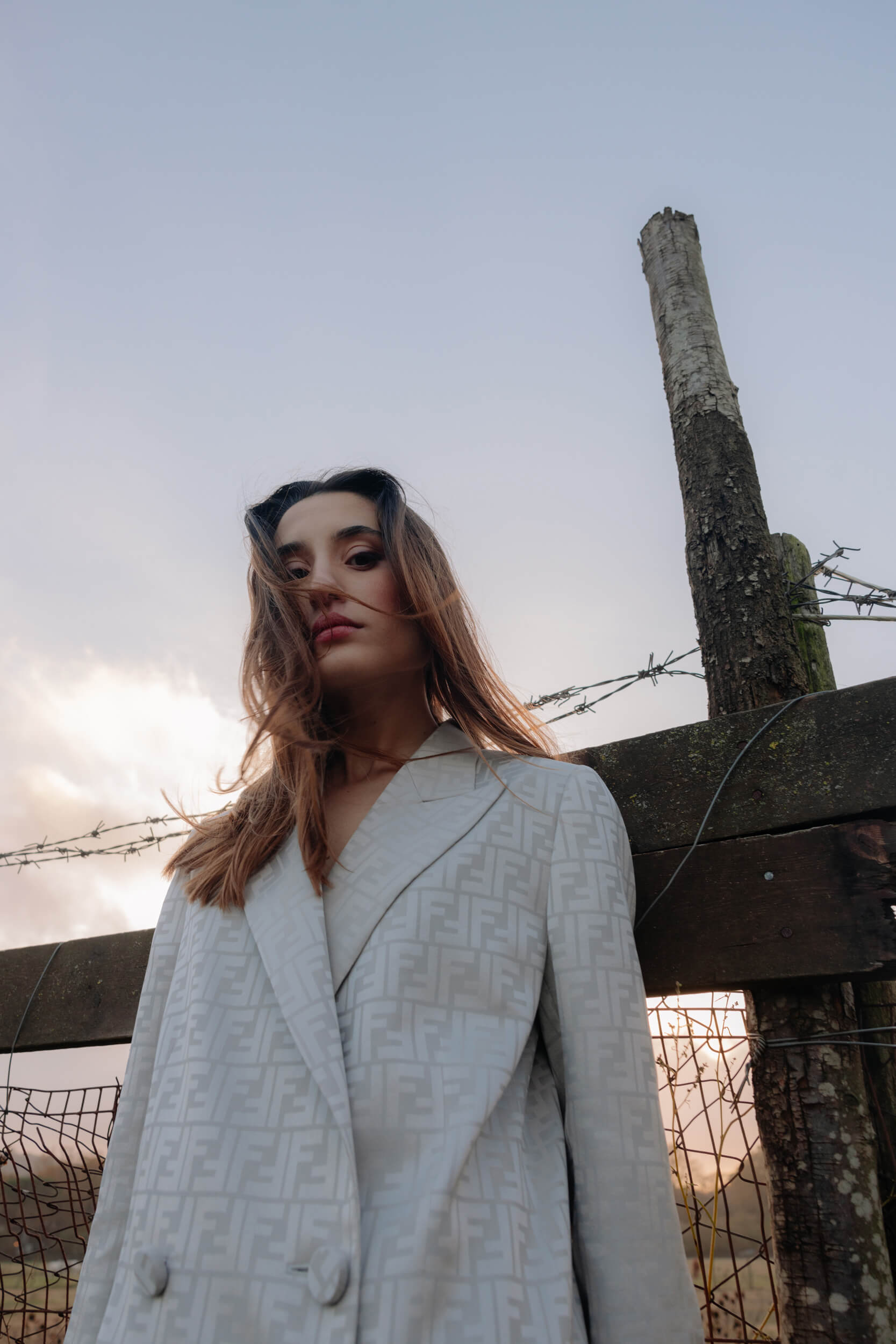
What are you afraid of?
Of cruelty. Of hate. Of wars. I’m afraid when I hear on the news that there are people who hate each other. If we continue like this, I don’t know where we’ll end up, and this prospect scares me a lot.
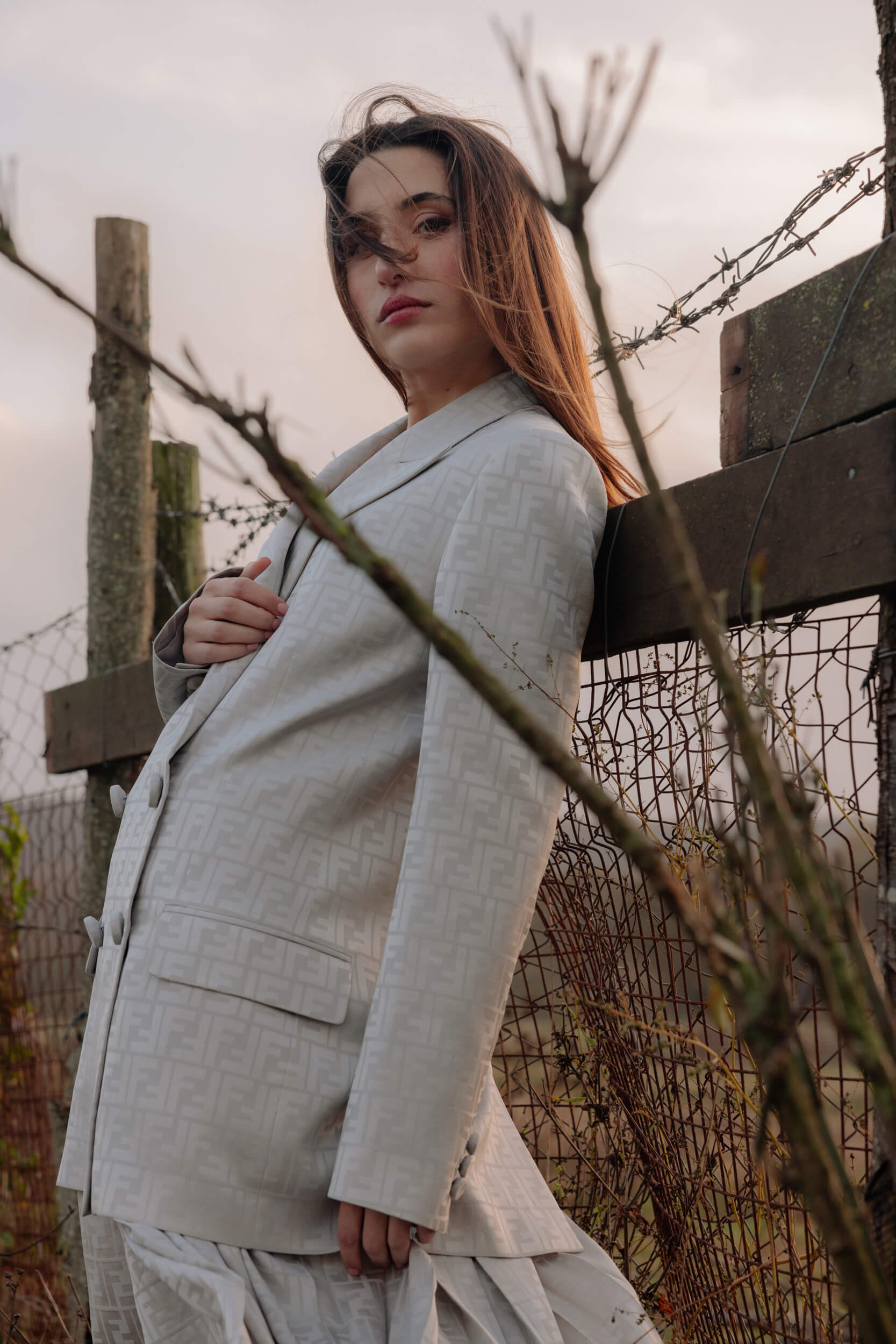
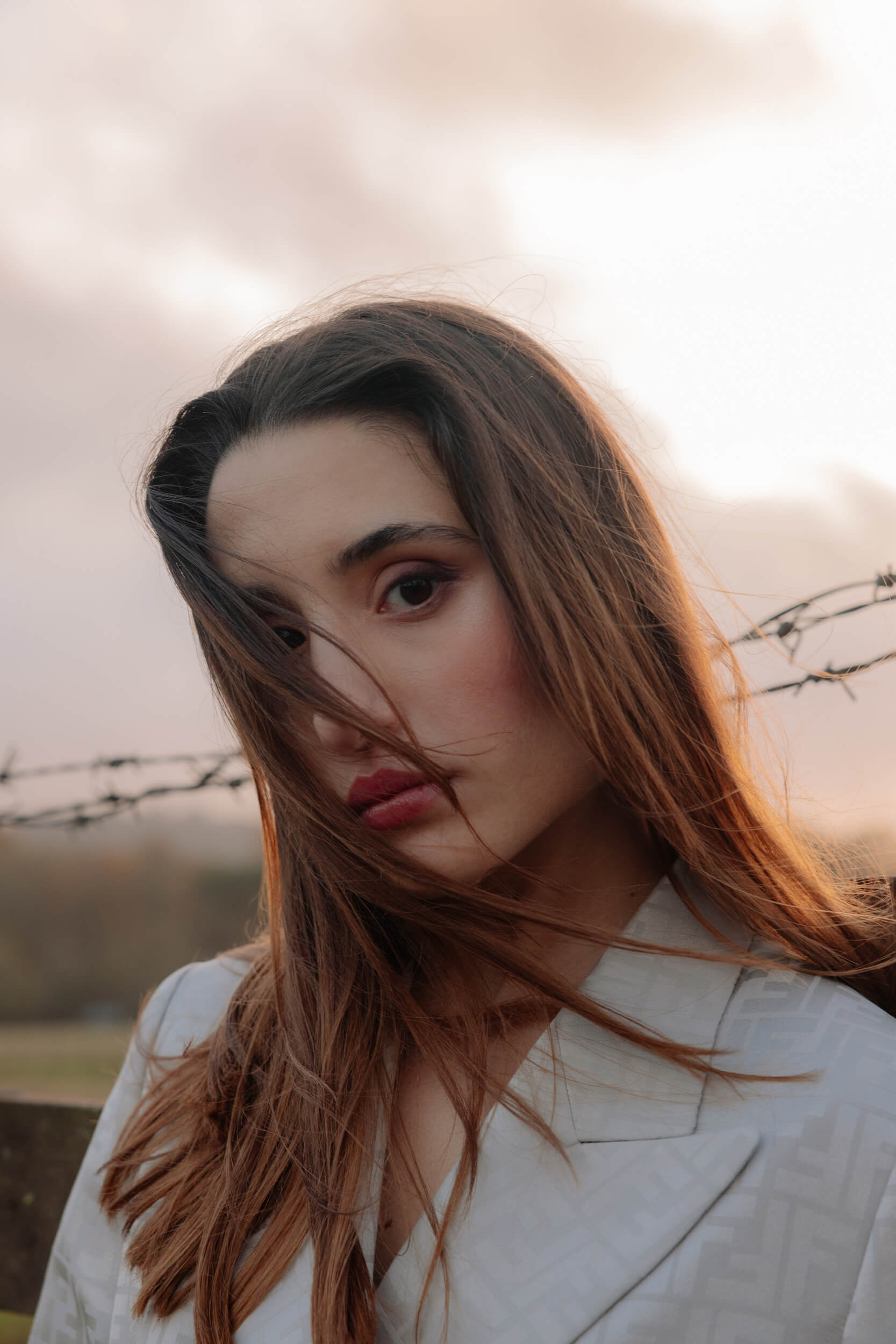
When do you feel safest?
I feel very safe at the cinema because it gives me sensations that make me feel good and protected. Perhaps because through the screen, you have the opportunity to travel, entering a different world.
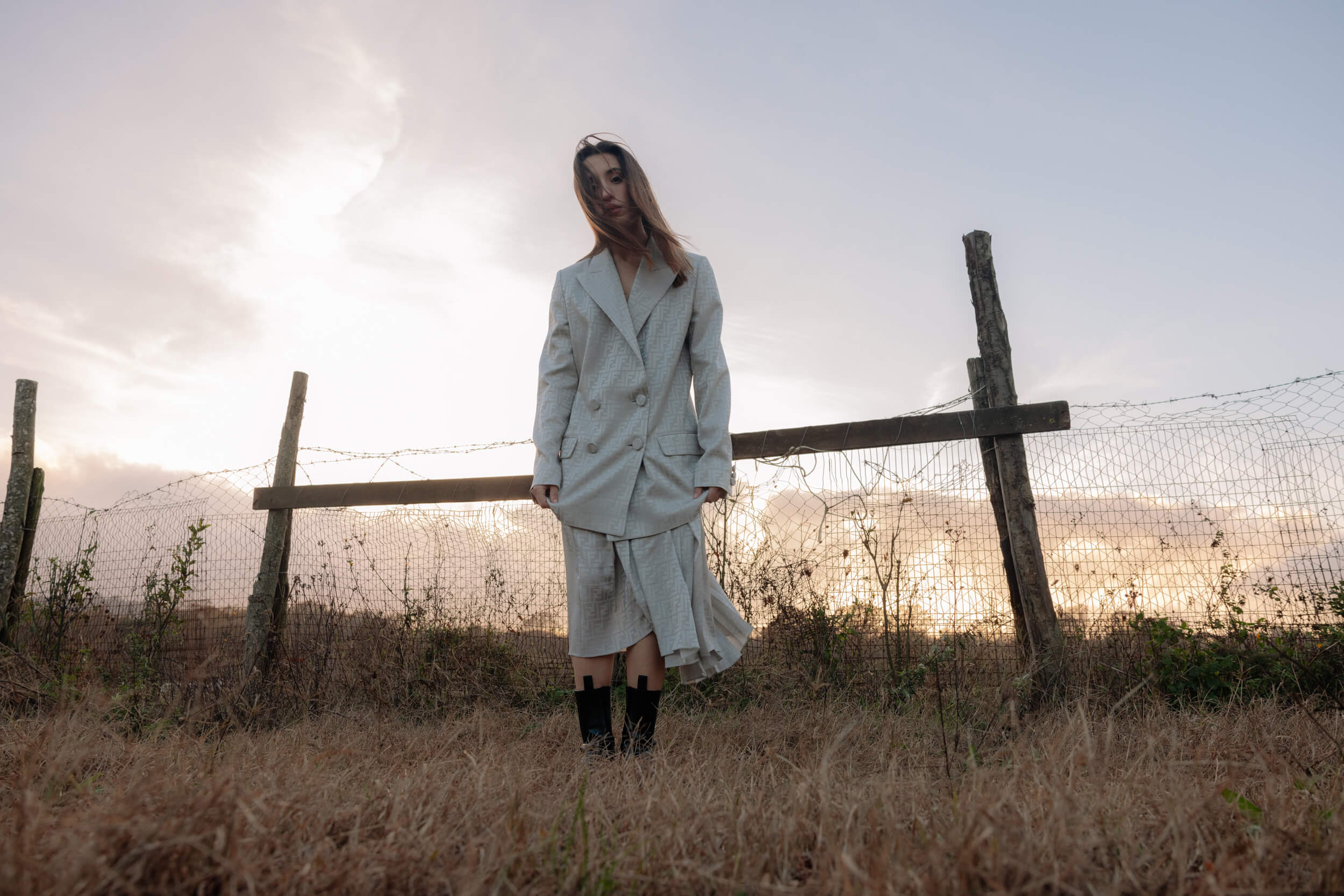
What is your happy place?
Always the cinema. If I could, I’d go there every day.
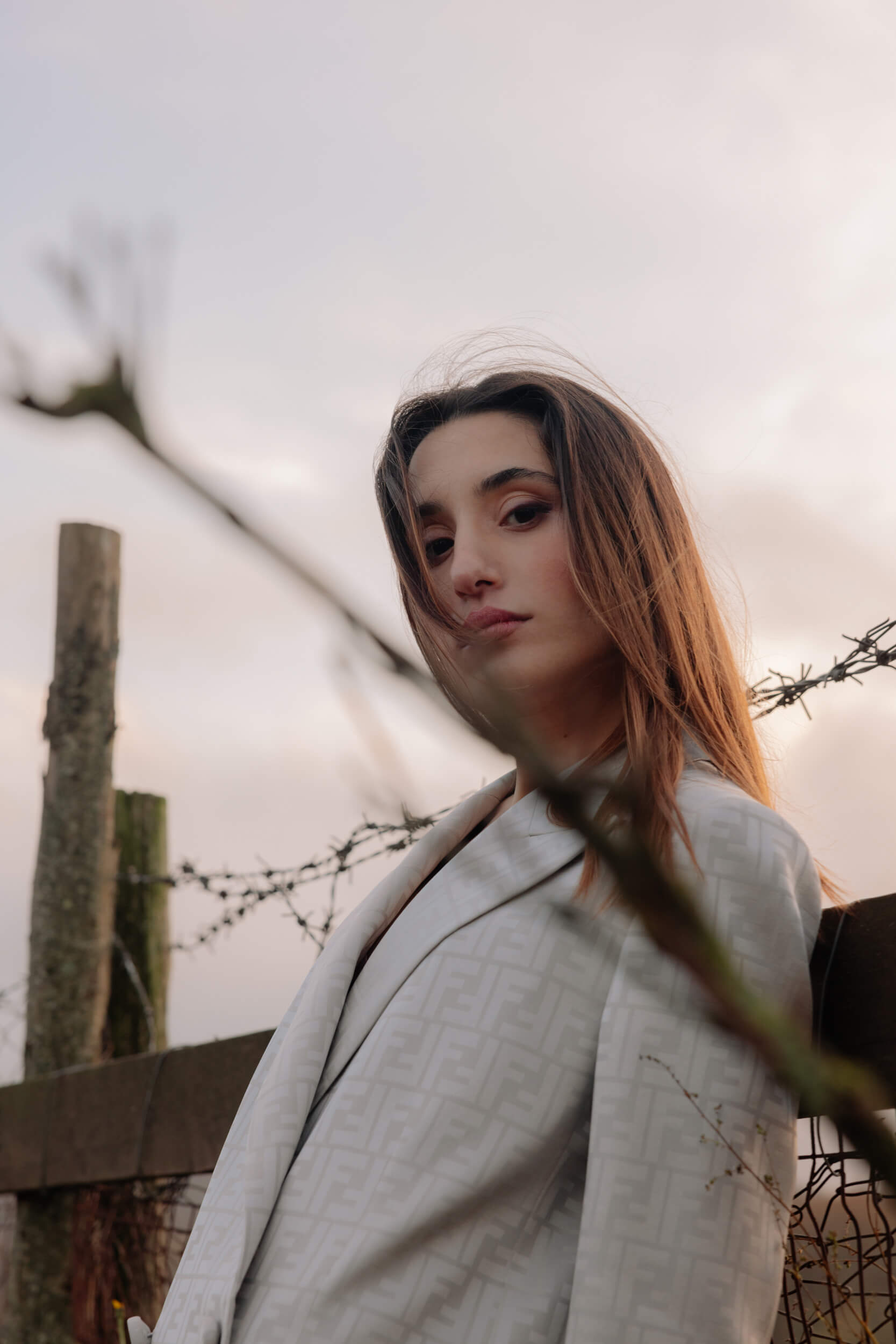
What’s the last film you watched and liked?
The last one was “Another End” by Piero Messina, I liked it a lot. Also, “The Faculty Lounge”, “The Zone of Interest”: lately, I’ve been watching lots of great films at the cinema.
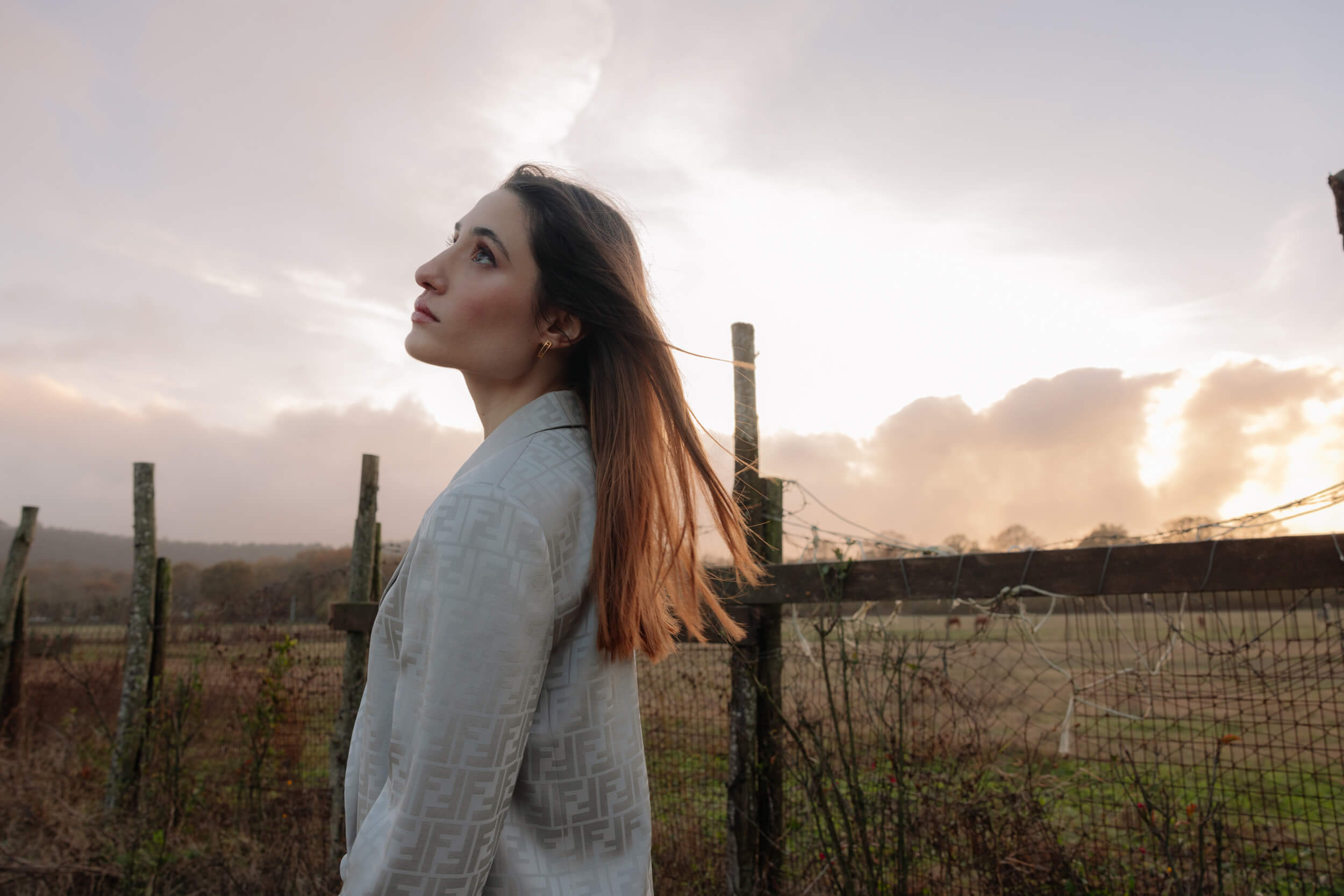
Photos & Video by Johnny Carrano.
Makeup and Hair by Maddalena Pasquini.
Styling by Andreas Mercante.
Location: Agriturismo Colle dell’acero – Azienda agricola Elio Iacchelli.
Total Look: Fendi.
Thanks to Andreas Mercante & Edoardo Andrini PR Talent Agency.

